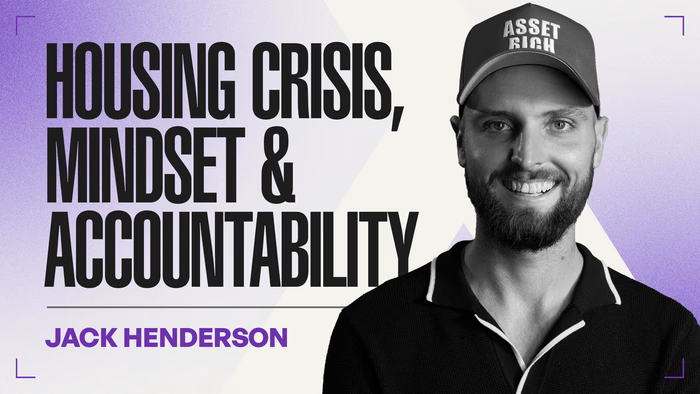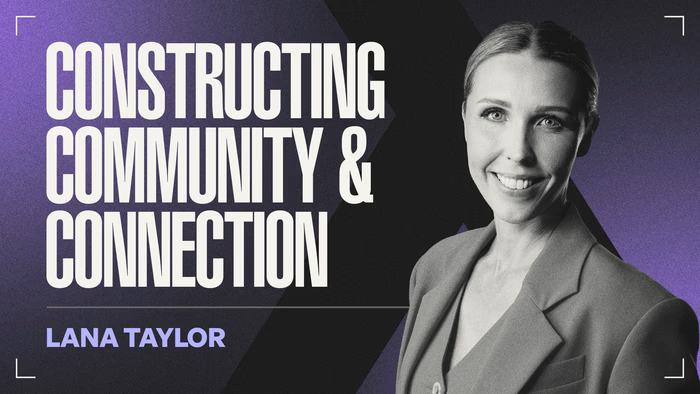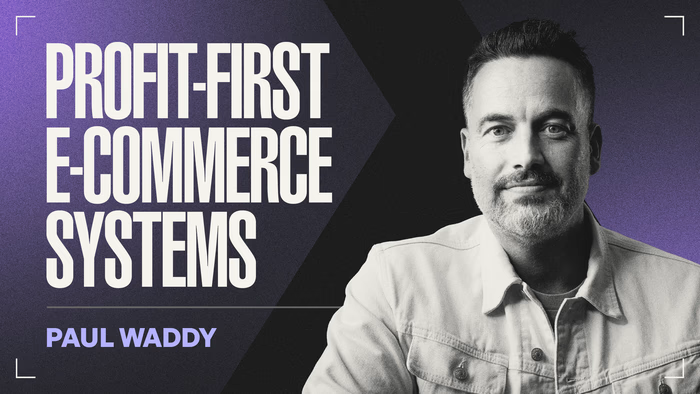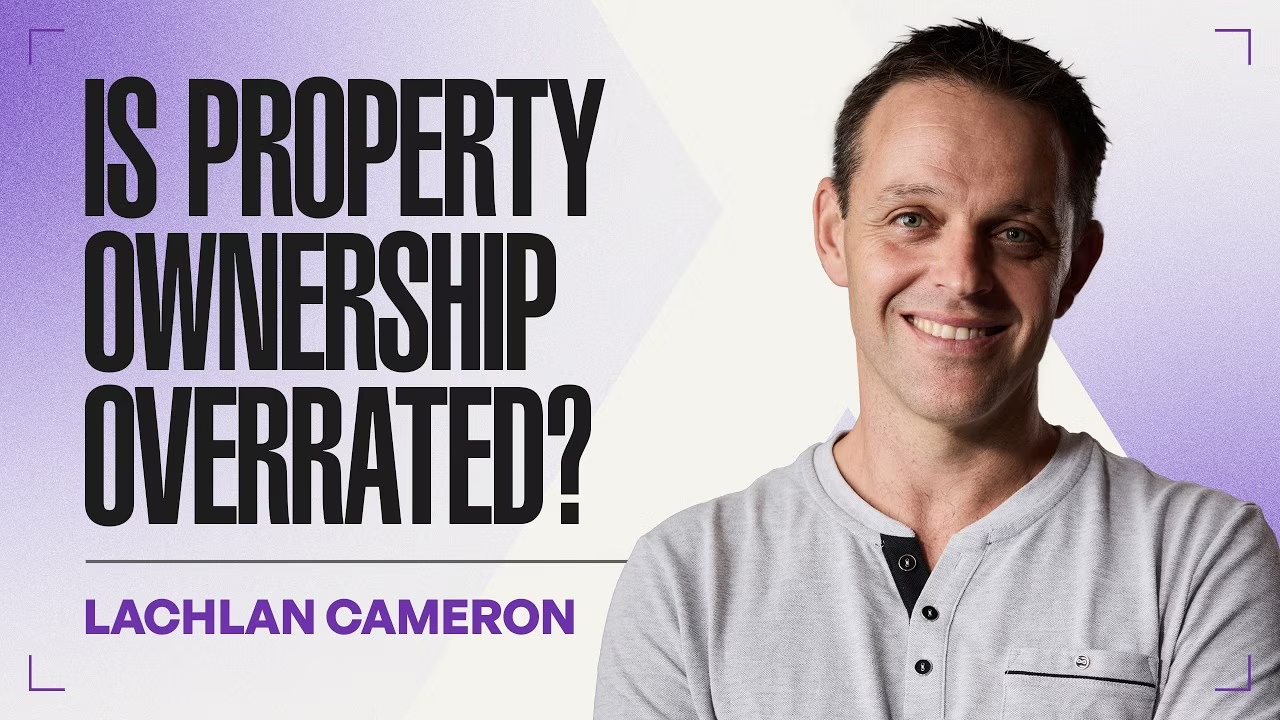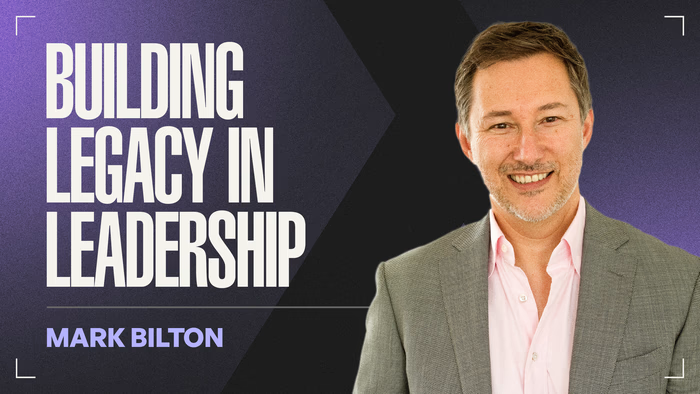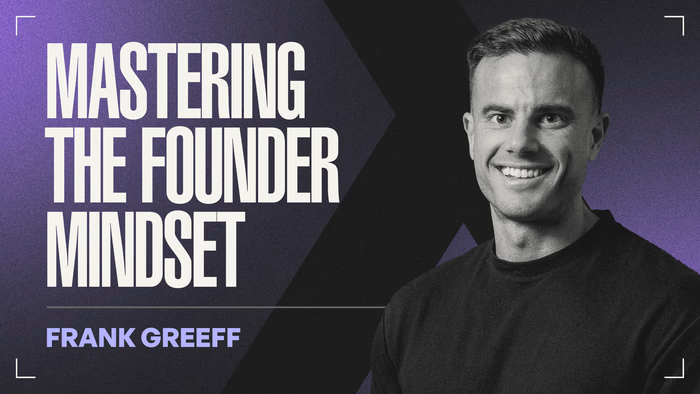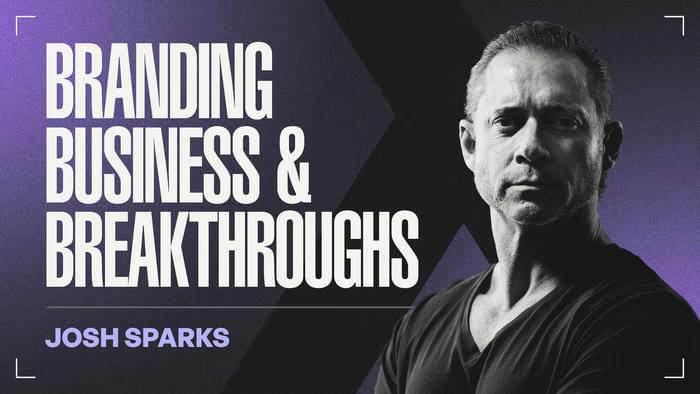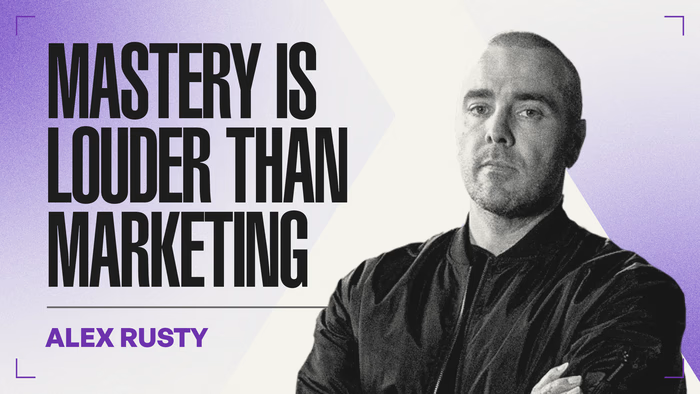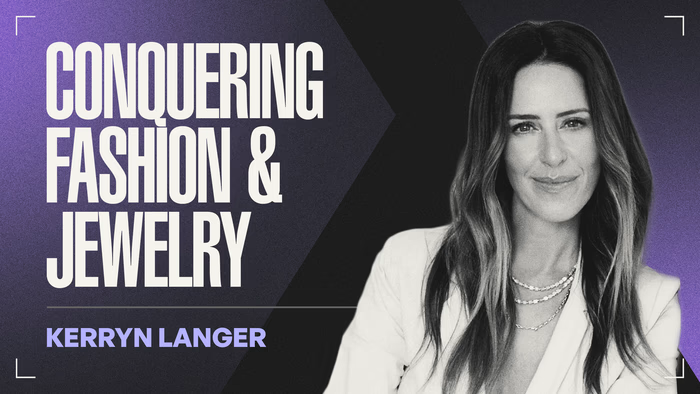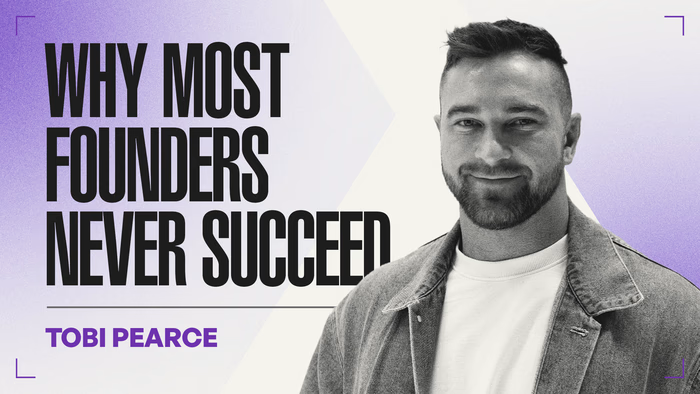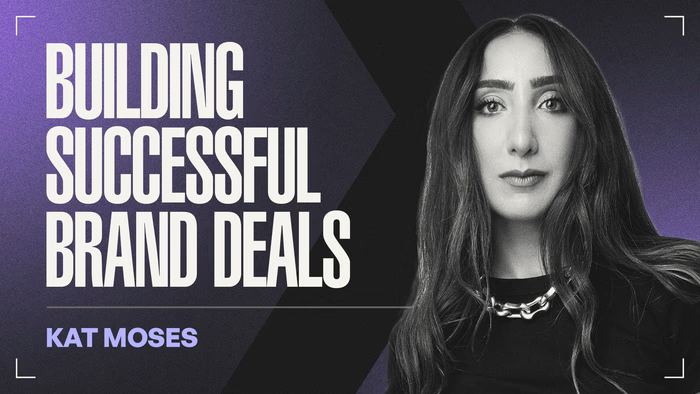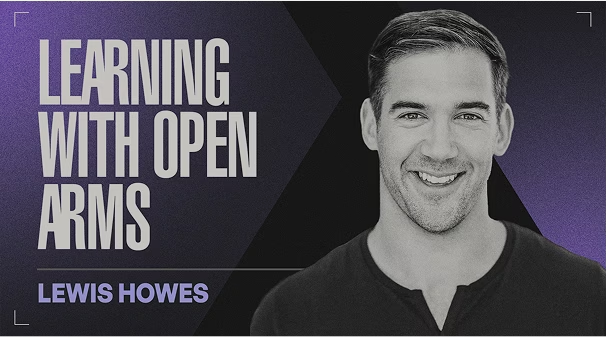


TLDR
Summary
Lachlan Cameron, an investor, entrepreneur, and founder who has raised over $200 million in capital funding, brings a rare dual perspective to the world of fundraising. Having been both a founder seeking investment and an investor deploying capital, he shares lessons on communication, investor psychology, and the cultural differences that shape funding in Australia, the US, and Europe. He also challenges common myths around unicorn valuations and the hype surrounding AI, grounding his advice in realism, preparation, and authenticity.
Lachlan emphasizes that successful fundraising is less about flashy pitches and more about conviction, clarity, and building genuine relationships. He encourages founders to ask thoughtful questions, engage investors in conversation, and keep communication consistent to stay top of mind. He also warns against ego and overconfidence, instead highlighting the importance of vulnerability, openness to feedback, and trust. From structuring a pitch deck and presenting risks clearly to understanding equity versus debt funding, his guidance helps founders avoid pitfalls and align with the right investors.
At the core of his philosophy is the belief that entrepreneurship is about more than just raising capital. It requires resilience, humility, and the joy of helping others succeed. By combining preparation with authentic storytelling and a long-term mindset, founders can not only raise money more effectively but also build ventures that create lasting value.
Highlights
- Asking smart questions helps engage investors and build stronger relationships
- Billion-dollar valuations don’t always translate into personal wealth or sustainable businesses
- AI remains a crowded space where defensible technology and real revenue matter most
- Global uncertainty makes investors cautious, but long-term trends like property and AI still attract attention
- Conviction, preparation, and confidence are essential when pitching
- Vulnerability and openness to feedback build credibility and trust
- Authentic storytelling and clear communication set founders apart in a crowded market
Transcript
00:00:01 - 00:01:04
I understand that in the history of business you've raised over a h 100 million in cap funding. Got >> 200 million now. So big. >> Lachlan Cameron is an investor, entrepreneur, and founder who has raised over $200 million in capital funding. Lachlan brings a rare dual perspective on what it takes to build, fund, and scale successful businesses. >> There's two things I've never seen taught in a textbook that's so essential when it comes to raising money. The first of those would be ask a lot of
00:00:32 - 00:01:21
questions of your investors. They want to talk about themselves. It's their favorite topic. And the other would be communication. You can be a squeaky wheel. Just make sure you communicate. One of my mentors said to me that growing a business is like riding a bike. As soon as you stop pedaling, you fall off. Something the world needs more of is more of that entrepreneurial spirit. Get out there and give it a go. Australia's not great at it. and and we need more people out there just having a go and
00:00:57 - 00:01:56
more investors actually supporting the founders in whatever their their idea is. Why continue to invest? I get my real jollies out of seeing other people succeed. If we can help people on their path to not just getting rich and sitting on a beach, but seeing their vision become a reality, my god, that's fun. Do I like making money? Yes, I do. Definitely. but also like doing so in such a way that other people actually get a win out of life themselves. >> What's one thing a founder should never
00:01:28 - 00:02:31
say when asking for capital? >> This is probably the biggest one where I see people fail. This episode is brought to you by Wick Studio. you've been on both sides of the table uh as an investor and as a founder and I understand that in the history of business you've raised over 100 million in cap funding >> about 200 million now I'm told but yeah I don't know the exact number but definitely I have been on both sides of the table and still am >> so I'm now an investor investing in
00:02:07 - 00:02:59
things and I'm still raising money for other things I'm doing as well so yes >> when you think about raising capital for yourself and something that you're venturing into or you know moving to the other side of the fence and being the investor. Do you tend to have a favorite side to play from or do you enjoy the dichotomy of jumping between the two? >> Yeah, I love the dichotomy between the two is it's a lot of fun and I think having been on one side gives me so much
00:02:33 - 00:03:18
benefit now being on the other side as well because you put yourself in the shoes when you're raising money. Put yourself in shoes of the investor. You know what they're looking for. Likewise, when you're an investor, you know, placing your money somewhere, you've been on that other side of the fence and you um in the nicest way can judge people about what they do, what they're doing well and what they're not. And I learn things when, you know, as an investor being pitched, I learn things
00:02:56 - 00:03:55
about, you know, um next time I'm out there trying to raise money. So, yes, definitely. >> And do you have any um go-to maneuvers or tricks or tactics when you're trying to put yourself in the other person's shoes? Yeah, there's two things that for mine they don't I've never seen taught in a textbook or in a course anywhere. And for me, they're so essential when it comes to raising money. The first of those would be ask questions. Ask a lot of questions of your investors. You
00:03:25 - 00:04:17
know, they are quite um commonly very successful people themselves. They want to talk about themselves. That's their favorite topic. You get them nodding about whatever it is. and you can do your research about them about what makes them tick, ask them questions accordingly that then brings them back to the topic at hand, which is what they're here for, your pitch. I find it's it's a huge huge thing that that really helps. Um, and the other will be communication, which is such a often
00:03:51 - 00:04:43
buzzword. However, in this respect, you can be a squeaky wheel as someone raising money. be an engaging and intelligent squeak if you will, but make sure you got the um communication, open, honest with your potential investor before you meet them. Then afterwards, make sure you keep it up, you know, whether it's a phone call, an email, a text, any other form of media, just make sure you communicate and and be top of mind for whatever they're doing. They are busy people. Make sure you're there
00:04:17 - 00:05:15
and um in what's what's going on. Now, when you're looking at uh cutting through the noise and you're talking to a founder, I imagine that founders love to fantasize about raising capital. It sounds sexy. It sounds like a cool thing. We see it in movies. We see it in pop culture. We see our favorite entrepreneurs talking about it. What's the biggest myth that you've seen them buy into when they're thinking about raising capital and fantasizing about the outcome? >> Yeah. And the latest buzz word, I guess,
00:04:46 - 00:05:38
would be unicorn. And the unicorn is, you know, getting a billion dollar business. And just because a business gets to a billion dollars doesn't mean the founder is a billionaire. Far from it. And in that respect, I guess a founder needs to be I guess asking themselves the question, why are they doing this? Why are they raising money? Is it for the um for the credibility? Is it to have runs on the board? Is it for the next thing they're going to do? Is it to get sort of sort of an exit? Um,
00:05:12 - 00:06:07
but I think the biggest myth would be, yeah, just because you're creating value in a business doesn't mean you're creating value for yourself. >> And if you're looking at the market right now and the topic of becoming a unicorn, I'm seeing this happen a lot in the space of AI. And some stats just came out and it's that AI got a third of all VC money last year. >> Yes. Which is fascinating. I like to think I'm getting my head around AI. Um I don't know if anyone is really other
00:05:39 - 00:06:30
than AI itself when it comes to this. Yeah, that's an interesting stat. Uh I am an investor in another company who themselves is the biggest AI investor in the world. So they've uh by by number of companies that is so they've invested in more AI companies than anyone else. >> How many companies are we talking about? >> I they've told me the stat. Um >> if you had a guess >> it it was it was hundreds. It was well and truly hundreds. Uh but I can't remember the exact stat. Apologies.
00:06:05 - 00:07:01
Yeah. And what does that mean for founders building businesses that aren't in the realm of AI? >> Yeah, I think there's still much opportunity in the whole world of traditional business. And even if it's not AI, there's so many new industries popping up, left, right, and center that are not AI. Doesn't need to have an AI focus necessarily to it. However, almost every pitch I'm being pitched to at the moment has some sort of AI uh twang to it, if I can put it that way. They try
00:06:33 - 00:07:24
and get the the buzzword AI in there, even if it's not real AI. It's >> Well, we're seeing those memes on the internet around VCs chasing after people that just use the buzz word AI. Yes. And do you think that a lot of founders are putting AI technology into their pitch just to get it across the line or are they genuinely trying to integrate AI into what they're doing? >> I'd say some of option B, some of option A, some of option B. Probably more often than not, just getting the term in there
00:06:58 - 00:07:55
to to raise the money. I mean, I'm a bit skeptical about it myself. I mean the I'm a bit traditional when it comes to this. I like to see a business making real revenue and real profit. And yes, AI is a means to to doing that. Um I'm also seeing a few AI technologies coming out there. If you blink, you'll miss it because there's something else that comes in which is bigger and better again. So I guess you got to be careful when it comes to that being both a founder and an investor. If there's capital
00:07:26 - 00:08:15
resources going towards some sort of AI technology, make sure it's defensible. What's the motor around it that's getting built? Why is it going to be something that's going to actually create real revenue and profit? Saying that from a technical analysis point of view, I get it. If if uh you think there's value in it, the next person will as well. So there's potential to get out before, you know, any real value is created. If you look at the barrier to entry of an AI business, uh you know,
00:07:51 - 00:08:50
we're seeing these stories where someone is essentially skyrocketing from idea to creation to mass adoption and they're doing, you know, these massive multiund million exits. >> Yes. >> Then weeks later, you know, uh CHBT or another competitor brings out one feature on their app and it wipes out the business, >> destroys it >> entirely. >> Exactly. So when when you're looking at the market and how AI is super accessible, it's pretty lightweight, it's reasonably cheap, and you know,
00:08:20 - 00:09:18
someone in college can basically start vibe coding something, create a pitch deck, usually using the AI that they're building from as an LLM, creating a pitch deck, and so forth. They're launching this into the market. And you know, you're seeing these unicorn stories of kid from college vibe codes an app that did a $100 million exit and then a week later, you know, CatchyBT comes along, releases a feature, wipes out the business entirely. So, it just seems like the risk uh of investing is
00:08:49 - 00:09:38
increasing in this space in particular, but like what what's really the appetite right now for VCs in this space? Is it increasing or is this just a bit of a short-term hype? >> I've not seen a bigger appetite for anything. uh than this for quite some time. There's a huge appetite for anything AI at the moment. I personally haven't got as much of others. I'll be honest because exactly what you just said. You know, where's the real underlying long-term value here and I
00:09:14 - 00:10:08
think it can create it can be created can absolutely be created. It can create value in that eye and um and weave it into whatever your underlying core business is. It can be a huge opportunity and people do see these success stories, they get excited by that and they think, "Wow, I can do that." And they go and have a go at it. And if unfortunately the number of people who are having a go at it versus the ones that actually make it, it's a very very small percentage which is a shame. I mean it's um however
00:09:41 - 00:10:26
I applaud that. I think suddenly the world needs more of is more of that entrepreneurial spirit. Get out there and give it a go. Australia's not great at it and and we need better people out there. So more people out there just having you go and more investors actually supporting the founders in whatever they their idea is. It's very different very different the market here versus places overseas. And I'm excited to get into the different economics around the world regarding investment.
00:10:03 - 00:11:01
If if you think about how global events and interest rates are actually affecting uh capital deployment, what are you seeing move money globally right now? >> Yeah, interest rates uh certain political tensions around the world. Um a lot of investors are keeping their their their queue in the rack when it comes to investing right now. Um interest rates coming down. However, that's that's a good thing. Uh the economics of it, interest rates come down, they get less money in the bank.
00:10:33 - 00:11:27
They want to actually put their money out and do other things. That's the whole idea of interest rates coming down to spur investment. So, globally, uh I'm only raising money at the moment in Australia myself for for a few things I'm doing. Uh there's money out there. There's definitely people interested and keen on a global sense and in different pockets of the world though there's a lot of people uh just concerned about the uncertainty about where the world's going. Um but there's still money out
00:11:00 - 00:11:44
there for a good idea. Yeah, I think there's definitely opportunity. >> And what do you see as the greatest global impact that's happening right now that's um affecting how investors are making their decisions? >> I'd say the biggest word would be instability versus where the world is right now versus where it could be. People are just not sure. So how are they going to you know with confidence put their money in something when they don't know what's going to happen
00:11:21 - 00:12:16
tomorrow in in two weeks or in in two months let alone four years. So I think there's a few underlying trends which uh which people are following. Uh you know things like the under supply of property here in Australia for example. Um other things like the the trend of AI as as you brought up before. I think definitely there's there's some of those longerterm trends which uh which are here to stay and I think people are following those. And are we at an all-time high of market instability?
00:11:49 - 00:12:41
>> I wouldn't say all-time high. Uh however, yeah, it's I personally I probably got a different view of where the market's at at the moment or where the world's at more than the market. I think the market is thinking instability. I think there's opportunity. I there's a huge amount of opportunity right now. And I guess you look at any um market around the world, a lot of fortunes are created out of instability and they always have been. I assume they always will be. That reminds
00:12:15 - 00:13:03
me of the quote from Warren Buffett and he says never waste a good crisis. >> Absolutely. I don't know the exact quote from Warren, but that's a very very good way he's put it. >> What do you think is is really the climate right now? Do you think it's a good or bad time to go and seek uh capital for a business? >> Yeah, I'm probably answering that by voting with my feet. I'm actually out there raising money myself at the moment. So, and we're doing so with with
00:12:40 - 00:13:36
a lot of success. So, >> are you finding it easier than usual or or more complicated than usual? I think it depends on your underlying concept and and your um project you've got. For us, it's been pretty good. There's a lot of excitement around what we're doing. And um yeah, we we closed our our last fund in June this year, so only only a month ago and our next one's about to open and there's a lot of really decent early interest in in what what we'll be doing. So, um I think it depends on your
00:13:07 - 00:13:54
underlying idea. In what I do, yeah, there's interest. in other things I know people are trying to raise money for. I think their idea is good. I think their execution probably needs a bit of help. >> Now, if you think about like globally, there is seemingly what appears to be somewhat of a downturn just economically across the board. You know, some are debating that we're in a market slowdown. Some are saying that we're, you know, heading for some kind of crisis. >> Recession, recession, depression. Yes.
00:13:31 - 00:14:22
>> Yeah. Whereas recession, depression, we're throwing around throwing around these like massive scary words in in a downturn. What becomes more important to an investor? Is it the numbers, the team, the product, the idea, or or do the fundamentals remain the same no matter what the market's doing? >> Yeah, I think you mentioned the word fundamentals there. That's probably what's the most important for mine. Is the opportunity there um one that is solid and makes sense? And you mentioned
00:13:56 - 00:14:57
another word there, which is team. Team is huge. And if the team who are delivering whatever the underlying idea, product, project, business is have the grit, the determination, probably the vulnerability as well to um to go along with it to realize that their their ideas aren't always perfect and they can take advice from others um or learn from others, shared experience I should say. I think that's huge. >> And when you think about investing generally, like what are the signals that you look for that uh evoke you to,
00:14:26 - 00:15:14
you know, lean in or to pull out? Do you do you look at where the market's at first? Do you look at the founder first? Like what what are the first signals that you look for to even I guess indicate some form of interest? >> Yeah, when I'm looking at a new opportunity for the first time uh before I even meet the people, I'll probably look at the market and the opportunity and if it seems to make sense then great. I guess that's the first gate that we we want to open up and and see
00:14:50 - 00:15:42
if it makes sense. Um and then the biggest thing would be back. Yeah. meeting the people and you know uh it doesn't need to be one individual as a co-founder it can be a whole team together or everyone has weaknesses and how have they filled those weaknesses with other skill sets within the team would be a huge thing and if they haven't can I even and I enjoy doing this regularly can I help them fill those weaknesses with other people I know to put them together as either co-founders or um other members of their
00:15:16 - 00:16:20
team to to to fill those gaps >> if you look at the Australian private capital market um and and I'd like to I' I'd like you could define what that means to you as well. Um, is the market deep enough to support some serious growth or are we too resilient as a country on global money? I find it fascinating that the Australian market has such a huge uh I guess private capital opportunity and um existing market right now. And I think the reason for that for mine is um you know we have
00:15:48 - 00:16:38
the big four banks here and that system was put in place I think back in the 90s by Paul Keing from memory. Uh you know the four pillars of the banking system and these banks are governed by I guess making a profit. They are incredibly profitable, our big four banks, and I think power to them. You know, they've got a landscape that they're working within and and and they're doing well. >> And I understand we have some of the we have some of the most profitable banks in the world,
00:16:13 - 00:16:57
>> I believe. So, yeah. And we're a small country, however, >> most profitable and even the biggest like we've got some pretty decent size sizable banks here and and they're profitable. Exactly. Right. I think even the most profitable if I'm not mistaken. And if I'm in that bank's shoes, I'm on the board of directors, I'm on the management team, I'm the CEO of that bank, it's about how do I deliver value for my shareholders? And uh they're
00:16:35 - 00:17:30
doing very well out of what they're doing, lending money mostly to property, residential property in in Australia. And there's this huge other opportunity outside of that which they're not servicing that someone needs to service. And this whole world of private credit has sprung up. And in that world, I know a few people in that space as well. Uh they're fulfilling opportunity for um for businesses to grow other asset classes that aren't property and actually finally I guess giving that
00:17:03 - 00:17:55
service away accordingly. You pay a little bit more as an um as someone who's seeking money from these private credit people than you would be generally from one of the big four banks. Um however, yeah, that's it's an opportunity for mine that is there and there's a few rules. I know that uh the regulator APA the Australian credential regulatory authority have in place uh that mean the big four banks can't play in certain areas and those areas for mine represent opportunity. So if
00:17:29 - 00:18:26
they're not going to someone will. >> What are those areas of opportunity that the big four banks aren't really uh playing with? A good example of one that's close to my heart and mindset is a lot of regional Australia they weren't lending to and I believe there was a rule in place and my understanding don't quote me is that for every dollar they lent to some of these regions they need to keep four or five dollars on their balance sheet in cash in doing so that meant one of two things either they
00:17:57 - 00:18:46
don't lend to those regions or uh they've got to keep a lot of money in cash therefore it's a very expensive loan as a result so others stepped into that and and saw it supply in those parts of Australia and thought, "Okay, great. Let's lend to those areas as an example." >> And what does this all mean for founders? Does that mean that the majority of Australians equity is caught up in property and development and um real estate versus looking for business opportunities?
00:18:22 - 00:19:14
>> Australians are very interested in property and where they're at, and I get why as well, because there's still an under supply in terms of that respect. However, no. I think what we're talking about for is probably more the the debt markets in terms of debt servicing the um uh the property world. Now, I know plenty of people who have uh money out there in checkbooks looking for opportunities in uh in the nonpropy space. So, the tech space, um other platforms, e-commerce, other business
00:18:49 - 00:19:34
ideas, definitely there's there's opportunity out there. I know there's people looking to invest. >> Right. All right. So, if we're trying to give founders some form of hope, um would you say that there's a an overupp of capital to be invested and an under supply of talented founders to come and collect it? >> I wouldn't say an overupp of capital. I think the market is pretty good at reaching equilibrium in that respect. It does overshoot. >> It's pretty pretty even kill
00:19:11 - 00:19:55
>> over a longer term basis. Yeah, it it does overshoot and undershoot. >> And what about now? Are we finding that the money is coming back to the market? So, so right now I think we've come out of that L and there's people definitely out there looking to invest their their hard-earned money. Exactly. >> And if you if you think about the Australian marketplace because I want to go global for a moment as well. Do you think that there's a glass ceiling for Aussie founders um when it comes to
00:19:33 - 00:20:20
accessing global capital? >> Yeah, the word glass ceiling um it's like the term luck I guess. You know, people always look at their successful person and say, "My god, look how lucky they are." I'm sorry. You make your own luck. you have your own glass ceiling in place. So, maybe I'm I'm a bit cheeky when I say that. No, >> go into that, man, because I I think I think you're right. Like, when it when it comes to that mentality, like what is it that's holding people back?
00:19:56 - 00:20:48
>> Themselves. It's absolutely themselves. And yes, there's not as much historical money in Australia for certain things like tech businesses and and other things. I think that's starting to change a little bit. There's a huge amount of talent in this country when it comes to to the tech world. Um, and some of those are are really starting to make it on the on the global stage. And when it comes to that glass ceiling, yeah, I know a lot of people who think, I can't make in Australia. I'm going to
00:20:22 - 00:21:16
go overseas. They go overseas, they fail worse than they would have in Australia. Why? In terms of raising capital, I think because they've got that victim mindset that the world's against them. And the world's not against them. Like, the world is hard. Life is hard. You want to make it harder, start a business. Like, it's not easy. the whole world of starting a business and there's a reason that you know 19 out of 20 of those businesses fail in the first five years. It's freaking hard to to do so.
00:20:49 - 00:21:42
Part of that is raising money. Um it's pretty hard to fuel the business without the fuel in the tank which is capital. Hard to do it without without a team. You need all those things to line up and and come together for you. And I guess you've got to have the the wherewithal, the grit, the determination to push through those barriers and understand that no, that glass ceiling in place above me, I put that there myself. What's my real limit here? It's it's a well above that. >> Yeah. I I think if you if you think
00:21:15 - 00:22:14
about like a founder and their own metaphorical glass ceiling and how they might be going, I can't do that. Uh how much of this is reality versus their own I I guess journey of trying to protect their own ego. So rather than putting themselves in the face of failure, they're justifying that they can't do it to protect themselves. >> Definitely. And look, we've all got an ego. I've got an ego. And as a founder, I had a glass ceiling myself. I've still got a glass ceiling in things um that
00:21:45 - 00:22:36
I'm doing now because in my eyes, yeah, I can't make a business that big. Of course I can't. But the reality is when you look from the outside in, you can. You get the right people around you. You get the right capital in place. Um all the the bits line up. And yes, you got to do your research. You got to um have the right people in your corner. Anything is possible for anyone. Simple as that. >> We recently had a guest on the podcast. His name was Gus. and and he was mentioning to us he's like, "Dude,
00:22:10 - 00:22:58
everyone has an ego. Even Mother Teresa had an ego." You know, she wanted people to see her as a saint, as someone who was caring and giving to the community. And I think that there's a lot of conversation around founders like I don't have an ego. I had an ego death. It's like, well, actually, we all have one. >> Being aware that the fact that it's still there is one of the greatest things you can do is to, you know, know thyself and >> absolutely >> really aware of where you're at.
00:22:34 - 00:23:33
>> Absolutely. And um even as you say that I'm challenging my own perception of my of my own ego. I just said before I have an ego and I do but maybe my my ego is different to I even think it is. You're absolutely right. We we all need to be I guess aware of ourselves and just be vulnerable to the fact that actually it's okay for others to um give you some advice and and some help along the journey. Exactly. Now, if you zoom back out to I guess the global market and you think about the US economy, the
00:23:04 - 00:23:59
Australian economy and the European economy, when you think about investment, like what separates these three economies and why are they so different? >> Yeah. So, the US, the Australian, and the European, uh let's start with the US. I've raised a little bit of money in the US before and my god, they they love people who just try something. that entrepreneurial spirit and it doesn't matter if you fail. If someone gets out and just gives it a go and this I guess different parts of the US but as a
00:23:31 - 00:24:30
generalization yeah they um they will happily back something if it's got a a minute possibility of success and I think that's fantastic. I can give you an example for that. Um I lived in Jamaica for a little while. We were raising money there for for a specific for a specific venture and we got some money in from the US. We got some money in from some Australian investors as well. Uh this venture, it's still going, but it hasn't quite panned out exactly on the journey that um that things, you
00:24:01 - 00:24:48
know, that we thought it would. Nothing ever does. Like you you have a forecast and it'll be absolutely exactly wrong to to to what reality turns out to be. And our investor, our US investors are more than okay with where it's at. Some of our Australian investors are so angry with the situation. Like, how dare I not get my money back by now? And to be fair, I think they've got a right to be angry with the way it's it's gone down. Um, however, yeah, it's it's a bit of a
00:24:24 - 00:25:16
different mentality when you look at US mentality investing versus Australian. >> What do you think contributes to that mentality? Like why is it that the US counterparts are kind of like, hey, it's a part of the game whereas the Australians are a bit more like you you stitch me up. >> Yeah, I guess the word culture has to come into it. And what is it about the culture? Yeah, I think in the US um people are almost brought up with a mentality potentially of let's try something different. Let's
00:24:50 - 00:25:44
get out there. In Australia it's you know you're um you're brought up, you go to school potentially university or a trade, you go and get a wage and that's what life is. Uh I know for example a few things I do my family think are incredibly risky. Like what do you mean you don't take a salary anymore? You need a job. How do you support your family? How do you put food on the table? You don't need to is the reality. There's other ways to go about it. And it's okay to take a risk as long as that
00:25:17 - 00:26:17
risk is an educated risk and you understand what the potential upside and downside are. >> And what about Europe? >> In Europe, um my experience has been that yeah, probably a bit more akin to Australia at times in in mentality. Um not as much of a risk-taking sort of mentality in in some parts of it. uh far more traditional old world old world mentality. Uh however, there's definitely pockets of Europe that I've experienced where people are far more US in their in their thinking. Uh they'll
00:25:47 - 00:26:34
happily get out there and and back things if it if it looks like it's potential opportunity and a bit more exciting maybe is the word. They want the excitement um out there and be part of something as does anyone around the world when it comes to investment. Now, something I'm curious about and my judgment might be wrong here, but if you look at the US market, some of the conversations that you and I have had uh and I've had with other people in the investment community is that in the US,
00:26:10 - 00:27:07
there's more what they call old money. So, you know, let's say a family that built a business in the 1800s and there's like third, fourth, fifth generation uh family members still running these institutions. um there seemingly is a larger portion of these uh multi-generational um you know uh families that are investing together uh and so forth. Whereas in the Australian market it's predominantly built on the back of property meaning that people are sitting on um property developments and
00:26:38 - 00:27:28
the capital from that versus having a history of investing in businesses. >> Yes. >> Are we talking about different types of capital that have come from different places? >> Yes, absolutely. And therefore different types of cap. It's interesting that that terminology different types of capital. Yeah. A dollar is a dollar is a dollar. However, you know, people like to bucket into different different things. Interesting that you say that. >> But I'm looking more like who who's like
00:27:03 - 00:28:00
uh stewarded the money and and and how do they behave and operate versus um people that have different backgrounds >> and what's their experience and and generally people will invest in things that they've got experience in have made money in themselves. So exactly right. Therefore, Australia um a lot of it has come out of property. A lot in the US has come out of property as well over the years. Um with our last fund, uh we were going the reason we started it all because we had one US I guess family office uh who is a
00:27:32 - 00:28:20
very very old family office over 100 years. They've got a lot of capital behind them but they made their money out of property themselves. Um they showed interest in what we were doing. So we thought cool let's start a fund. It took us four months just to start an NDA with them. like they just it's it's sort of like this mentality of um we've we've done things you're going to wait for us and that's just the SNDA. There's no changes to it. It just took them that
00:27:56 - 00:28:50
long. Then after that we've tried to arrange a meeting with them. Got the meeting and then and then we never closed it off. They never closed it off but it just the speed of which they did things were so slow. We just really struggled with it as a as a way forward. So in the end we moved on and raised our money elsewhere. And I guess I look at that as a as one example of what you're saying. People have who've got that who's stewarding the money. In this case it was this particular family and the managers they
00:28:23 - 00:29:21
had on board. I know others in Australia who've made money out of things that aren't property and they're happy to invest back in property. In fact interesting that a lot of a lot who've made money in property want to invest in other things to diversify and vice versa. That's an interesting dynamic as well. And is there a difference between old money and new money? >> Yes, there is. And I think both access to old money and new money is possible for different ventures. Um,
00:28:53 - 00:29:52
>> how would you define the difference between old money and new money? >> Yeah. Really simply, old money is old, new money is new. But no, that's a answer. Sorry. Um old money is effectively as you said before it's money that uh a family or a group had had made 100 even 200 300 years ago in through different things and the families kept it going through different assets and so forth and in that respect the people the stewards as you call them before which is a good term uh they've
00:29:22 - 00:30:11
just been used to having money around them and the new money they haven't people who've they've had to be out they've had to hustle um it's a different mental ality guess that old money would have started as new money at one point in time and they would have had that hustle in their in their genetics as a result and um I guess that's the that's the the answer which probably comes back to if you're a founder presenting to one versus the other you've got to tweak your style
00:29:46 - 00:30:34
accordingly really understand who your potential investor here is and what their background is what their interests are so you can really I guess ask them the right questions >> and I can imagine that there's different me different mentalities and different ways of thinking about things like if I go back to when I started my business journey. I remember the first time we did, you know, a six-figure month and then, you know, a multi-6ig month and then so forth. It got to a certain point
00:30:09 - 00:31:05
where I was tired of risking everything. And I went into preservation mode >> and instead of trying to scale, I was trying to protect, defend, and keep what I had built. >> Yes. And my mentor at the time said to me, "The greatest danger you have in business is going from uh, you know, growth mode to protection mode because that's when everything starts to slow down and what got you there in the first place um, you know, is what's going to continue to scale the business?"
00:30:39 - 00:31:38
>> Yes. >> How much of being a founder is knowing when to scale and when to slow down? >> Oh, good question. One of my mentors said to me, "Yeah, growing a business is like riding a bike. as soon as you stop pedaling, you fall off. And maybe my mentality is a bit naturally conservative in that respect. I do like, I guess, preserving the base of whatever that is. And once you've got the base squirt away, you know, you've got a decent really, you know, operating working model, then it's
00:31:07 - 00:32:04
time to scale. And I guess in my experience also, it is a case- by case basis. I've been part of other businesses where there's just that constant need and drive for growth and that was unfortunately probably spurred by the fact that the uh presentations to investors all our graphs doing this big exciting um graphs that were going off the charts once you present that to investor you build a rod for your own back unfortunately and they just expect it's going to happen and when it doesn't
00:31:37 - 00:32:26
all of a sudden it's the team's fault whose fault is it everyone looks for someone to blame sort of thing. So I think yeah naturally it's it's got to be an inherent decision and you got to have the right people around you as a founder and ultimately a management team to know when to really you know pump that money back into growth and when to preserve what's there and the natural instinct for most people is just keep growing keep it keep it doing things. I'm impressed actually you had
00:32:01 - 00:32:51
that as a thing once you got to your your six figures of of turnover um per month. Yeah, it's it's um it's a challenge to actually say, "No, I need to step back and and hold back here." >> Yeah. And it's changing that different gear. And I imagine old money and new money, it comes down to, you know, the fact that new money is trying to attain something for the first time. Then when it happens, you go into uh fight or flight mode, which is I've never had this before. I don't want to squabble
00:32:26 - 00:33:16
this. Protect it. Whereas maybe someone who's grown up with intergenerational wealth is of a mindset of money's easy to get. Yeah. >> We'll just go get more of it. >> Yes. What's what's your take on those two mentalities? Someone coming at the game of business from uh let's say more of a prosperity mindset versus more of a pessimistic mindset. >> My opinion is getting money is hard. Keeping money is even harder. And doing something the right thing with it to
00:32:51 - 00:33:49
create money is probably the hardest of all. And I look at the successes I've had it I can count maybe on one one hands maybe two. I've had a lot more failures and mostly with my own money. I get very nervous of other people's money and I always I've luckily always made other people money when they've given me their money to do things with. To to get a dollar is tricky. To make another dollar out of that dollar is even harder. And then once you got those $2 in the bank, gez, you want to protect them. So it's
00:33:19 - 00:34:17
it's that mindset if you like. And I know a lot of people, however, who as soon as they've got those $2 in the bank, it's spent. It's gone. It could be on ice cream as opposed to back growing the business, but um it's it's almost it's a different mentality for people uh when they've got money in the bank one versus the other. Clients want it all. A slick looking website that can run their business and scale with their success. Wix Studio is built for that. Plan out
00:33:48 - 00:35:02
your client's whole site in seconds with AI powered site mapping and wireframing. Then when everyone's on the same page, jump into the creative. Starting off in Figma or in the Wix Studio editor with super precise layouting tools like grid, stack, and flexbox. Go above and beyond the brief with no code animations, custom CSS, and built-in business solutions. And make your whole vision responsive in a click. And there's zero need to break a sweat when clients grow fast. A dynamic CMS with global design
00:34:25 - 00:35:33
settings and reusable assets lets you turn one page into hundreds. Design smoother and deliver sooner. Go to wixstudio.com. >> And then what systems and processes um must a founder have in place before they even consider seeking capital? Yeah, I think an idea is fantastic, but without being able to implement it, then it's a wasted idea. So, if they've got the skill set themselves to be able to put those uh the operating system in place to make it happen or you are they an operator or are they some sort of other
00:35:02 - 00:35:51
founder, they've got to have the skills around them to be able to do that. So, uh and then once they've got that getting the traction in place, I think is a huge thing. Once they've started getting some traction, I think raising that capital will be a lot easier. And then when you think about the mindset and how this kills so many founders chances, uh, how many founders are killing their own chances with their own mindset before they even walk in the room and ask? >> Conviction I think would be the word
00:35:26 - 00:36:20
that I'd use there. So you've got to have conviction in your idea when you walk into that room with an investor and confidence. >> And when you say conviction, like can you frame what exactly that might look like? >> Yeah. So, if I've got an idea and I'm I'm going to make that idea a reality, I need to believe in it and I need to convince whoever I'm talking with there that I believe in my idea 1,000%. I guess will be conviction. And I guess off the back of that will be confidence.
00:35:53 - 00:36:43
Investors want to back a winner. They they really want to understand that whoever they're here with this conversation is going to succeed. Now, if we imagine and someone's getting ready to walk into a room for the first time ever to talk to someone who's potentially going to invest in their idea, what what should they have checked off their list before they step foot in front of the Shark Tank investors, if you will, to make sure that they're giving themselves the best possible chance?
00:36:18 - 00:37:03
>> Beautiful. So, I think top of the list would be understanding what questions are going to be asked. >> Okay. What questions to ask? >> Exactly. Right. um what questions are going to be asked of them and making sure they've got prepared answers for those or uh scripted answers that they can actually vary if if need be as well >> and maybe like premeditated answers to questions that are likely to be asked. >> Exactly right. Exactly that. And practice those with your parents, with
00:36:40 - 00:37:24
your with your friends, with your dog or cat. Just make sure you you've got those those answers beded down. Uh your idea and your product that you've got there. What is the the product? and make sure it's a um something that actually solves a problem in the market. So I guess on that checklist back to the checklist, what is the problem I'm solving and what's the solution we're offering and what then what's the product accordingly that that's actually going to make that
00:37:03 - 00:37:49
happen. >> So number one questions both ways. Number two, the product and the solution and number three, >> number two would be what's the problem? And then the back of that would be the solution and then number four is the actual product I'm providing that gives that solution. >> Yeah, that makes sense. Then if we keep going further, I think they're going to want to know uh who's the team behind this. So make sure you can answer that. Uh what's your background? What's your
00:37:25 - 00:38:25
experience? Uh what's your weaknesses and how you're going to fill those weaknesses with other people in in your team. Uh I think your financials are going to need to be scrutinized and really need to understand what your forecast looks like. Uh your current traction to date. I think what have you achieved so far both inside this venture and before this venture. uh a big you know threeletter buzzword at the moment is ESG. So what's the impact of this investment? Um so stands for environment, social and governance. So
00:37:55 - 00:38:44
I'm actually having any positive impact on the environment and social world and what's my governance framework that's actually going to going to measure that as well. >> What do you mean by that? Like can you just unpack ESG a little further for us? >> Yes. So ESG effectively people just don't want a return on their money these days. They want to actually know that the money going is to somewhere good and decent. So, um, helping to get clean water in Africa, whatever that environmental
00:38:20 - 00:39:11
positive social impact is, is a huge thing that people go for. >> Do investors really care about this? >> I was going to come back to that. Some do and a lot just want to back a winner and get their money back and make a profit. So, I think this comes back to understanding who is your investor you're um you're in the room with here. And a lot of them, a lot of the bigger investors, uh, institutional investors, they do need that ESG as a tick in their checklist when they're investing in
00:38:45 - 00:39:33
something. And, uh, do they care? Really, some would, a lot, probably not. >> So, you have it in there just in case. >> In there just in case. Well, and again, it depends what your idea is. If it's got a huge environmental and impact investing thing, then that's absolutely should have it in there. And I guess I I'm personally doing a bit of this and maybe because for me, it's not all just about making money more. I I want to make you make a positive impact on the world where I can. Um
00:39:10 - 00:40:01
>> so on the checklist we might have do your homework >> well and truly do your homework. Do your research into who your investors are. Absolutely. And then you can ask those people some intelligent questions as well. Uh other things on the checklist. So we've done our financials um the ESG impact side of things. Uh I think you definitely need to talk about your business and the valuation metrics that you're placing around it. And definitely have the ask in there as well. make sure
00:39:35 - 00:40:32
people go away knowing what you're looking for and what valuation does that place on your business and therefore um I think what every investor wants to see is three things. It's how much am I going to put into this investment? What am I going to get back out of it and when? And what are the risks associated with with that happening? >> Okay. Now, when you're thinking about the founder who's about to walk into this room and hit their checklist, so to speak, what's the fastest way to prove
00:40:03 - 00:40:55
that your product is a good product market fit to the room of investors? >> Absolutely. So, I think psychology comes back into it straight away. And I think, you know, if you enter the world of keynote speaking or something, you want to get people hours to start with. You want to really go over there with a bang and get them excited. And I think that's what your first thing needs to be. your your cover, your pitch. It's got to be um let's get people on the edge of their seat about what's about to come.
00:40:30 - 00:41:31
>> When you're getting in front of a room of investors, is it really at the end of the day just a popularity contest? >> Ultimately, those investors will either invest with you or they won't. And there'll be a bunch of reasons why they will or won't. And you want to make sure that they're nodding with you along the way. And you'll get a feeling pretty quickly about whether they are or aren't interested. And absolutely, it's a popularity contest from the point of view of they will want
00:40:59 - 00:41:57
to invest in you because they have a fear of missing out or they see that this is an opportunity that's going to make sense or candly they want to be popular amongst their fellow investor friends. So appearance is everything for people and then from that point of view absolutely it comes back to have you got the look have you got the team have you got something that is attractive to them as investors that they want to be part of. >> What are some other things that founders can do to elevate their opportunities?
00:41:29 - 00:42:31
>> The other thing they can do I think is and this is probably the biggest one where I see people fail. They don't show enough vulnerability. >> Okay. They don't show that they are willing and open to listen to these people who are going to invest in their businesses. And uh through a pitch, an investor might come out and say uh have an idea about whatever it is and whoever the founder is thinks they know everything and they'll just dismiss it straight away. Unfortunately, they'll
00:42:00 - 00:42:51
lose that investor on the spot. An investor wants to be heard and quite often they've got great ideas. Like they're generally successful people who've done things. it's worth listening to those people. Not always, at least listen to them, give them the air time uh along the journey and then make up your own mind about what it is. So I think that ability to to take on feedback and and be vulnerable to fact that your idea might uh might be amazing and could be even better is a huge
00:42:25 - 00:43:16
thing. What do you say to the founder right now who's in a predicament where their backs against the wall and they hope it works out? They're not quite sure if it's going to and they have an opportunity to raise cap. Should they go for it? >> They need that conviction to know that it's going to work in my eyes or to know that it has a better than average chance of of working toward whatever it is. If they don't have that conviction, it's going to be bloody hard for them to go
00:42:51 - 00:43:42
out and try and convince other people that that it will. Why why is having that conviction the game changer of someone, you know, pushing through against the odds versus someone who's trying to be measured and calculated along the way? >> Yeah, measured and calculated is an interesting thing. You you don't want to catch yourself and you never want to mislead investors. That's in fact illegal in most jurisdictions around the world. So, you got to be really really careful about about what you do in that
00:43:15 - 00:44:16
in that respect. and um and you don't want to start raising money to then uh pay back other investors and raise more money to pay back them. That's a Ponzi scheme. That's also a big no no. So, I think yeah, having that conviction and that confidence that your idea it it might not have gone exactly to plan. You might have gone out and tried to raise money and failed, but you tweak things and you can go again. having that mindset that this thing will succeed. I think investors will see through it if
00:43:47 - 00:44:38
if you don't. >> Okay. So, take me back to the situation where you know the uh world world events are taking place. Um you know the regulations have changed uh profit has stopped, cash flow is not coming into the business and you're approaching investors to say hey we got a plan. >> Yes. >> What does that look like? >> For us our plan was a much longerterm plan. We had to be a real business with real profit. Whereas in that sector originally, you didn't have to be a real
00:44:12 - 00:45:05
business, real profit. People were raising money and exiting on an idea. And all of a sudden, it turned into something. No, we needed to actually have real revenue, real profit and and make a go of it. So that's what we presented to investors. Now we I believed in at the time. Yes, we turned it around. Yes, we managed to move our product around the world. It just took a lot longer than we originally thought. Uh and we had to move a lot of resources around. uh unfortunately you know exit a lot of people exit a lot of people from
00:44:38 - 00:45:29
the business uh to keep the business alive which is always a very very tough decision operation for someone to do especially if it's their business they've seen it grow they've seen it you know bring people on you get your first employee get your first 10 employees 100 employees a thousand employees all of a sudden you got to let half those people go that hurts however it's a reality that a lot of people often have to face and it's a dark reality something that people really struggle with I mean
00:45:03 - 00:45:58
humans Uh it's all sorts of humans out there. Some cope with that sort of stress way better than others. And not every leader uh you don't have to be a leader who's a mongrel in my opinion. And I'm using that word because people have said that to me in the past that I don't have enough mongrel in me and I need to have that in me to be successful in the nicest way. I I don't want that mongrel in me. It's not who I am and I'd be inauthentic if if I did. Now, if we're being brutally honest about
00:45:31 - 00:46:36
founders, um, does everyone have at large what it takes to become a founder? >> No. No, they don't, which is a shame. Um, a lot of founders think they have what it takes and they don't. And a lot of founders don't think they have what it takes and they actually do, which I find interesting as well. And as we said before, life is hard. Like, it's not meant to be easy. and starting a business is even harder. Like it's not an easy thing. >> I I want to go into that a little deeper
00:46:04 - 00:47:02
for a moment. Like if you think about the founder that um thinks they have what it takes and doesn't. What do you mean? Like what do you typically see where you're thinking to yourself, man, this person just doesn't quite have it. >> And it could be any number of things. Um I I've seen founders who've really got the confidence and the conviction out there that they're going to make something work, whatever it is. And it's probably their belief in their idea, their overbelief in their idea
00:46:33 - 00:47:32
that their their one single idea is going to make it. They had an opportunity in three or four times that I can remember this particular one that they could have pivoted, I hate the word, but pivoted into different things and and they didn't and they should have. So probably just stubbornness is a good thing in a lot of ways and and blind stubbornness is a bad thing in this respect. That's what this these people were. >> So it's like that uh uh you know country song like you got to know when to hold
00:47:03 - 00:48:00
them and when to fold them. >> Exactly. Exactly. >> Now on the other side of things where you said that um sometimes people have what it takes but they don't realize it. What do you mean? >> Yeah. It's that that old adaja the imposter syndrome like uh I I've got an idea and it's amazing. Oh but I can't do it because I just can't. It might be that I'm scared of just taking that leap and not earning a salary for a while. It might be that uh I don't have the capital behind me, but
00:47:31 - 00:48:19
no one's going to invest in me. Like, of course they won't. Of course they will. They absolutely will. You've got to have your idea. You've got to have that ability. Uh sell your idea to a few people who can even join you on the journey. Um meet another co-founder who you might pair yourself with and it works really well. I find that's actually probably something that people don't do enough out there. have an idea and bring someone on board that can be their their co-founder in what they do
00:47:55 - 00:48:50
and make sure that co-founder has complimentary skill sets to to the first individual. Um but yeah, that that overall belief is a big thing. Um and then I I see some people who just they almost think age is a barrier >> really. >> They think they're too young or they're too old. >> Yeah. >> And that's I always feel like I'm too young. >> Really? Yeah. You still feel that way? Even though I'm 35, I'm like, man, I'm still a kid. >> Certainly, certainly. Yes.
00:48:23 - 00:49:10
>> I I keep forgetting I'm a man, you know. Yeah. >> Yeah. Yeah. >> Oh, absolutely. And yeah, one uh very talented young individual I know at the moment. He's in his mid20s. He's going to go a long way in my eyes. And another business partner of mine is 79. >> Really? 79? >> A month younger than my dad. And >> I love that. >> And I'm learning things from him every single day. Should a founder lead with a clear ask or should they allow the
00:48:46 - 00:49:43
investors to frame the conversation first? >> Very simply, that depends on your investor and doing your research into your investor. Both can work and both can work really well. I prefer getting the ask out there up front so people know what it is that that they're after. Um, or what you're looking for as a as someone looking for their money and what their what their part of the journey is going to be. And if if it's equity, what does that look like as a as a valuation piece? If it's looking for debt, just
00:49:15 - 00:50:10
making sure they know. Then it just frames the whole conversation around what what's coming next. Um, another tactic absolutely is leave it till the end and have the ask them. Once you've got them excited about what it is, you got them on the edge of the seat. Oh, now here's what the ask is. And I think the only the only thing I'd say is it option A or option B? I'd say yes. Just make sure one or the other you do it and you actually ask. you put it out there. >> And what are the non-negotiables for a
00:49:42 - 00:50:32
well-defined ask? What does it need to include? >> Non-negotiables, you you need to leave your prospective investor knowing that or knowing what it is that that's that's on the table. The bonus points would be for giving them an idea of what an exit would be like for them. So, in the nicest way, a lot of them don't, you know, they want to know that you're doing okay of this as well, but they don't really care about your exit as as the founder. when are they able to get
00:50:08 - 00:50:59
out of this and what's the risk associated with them doing so? >> Now, a lot of founders don't realize that they can ask for two types of capital. One being equity uh like them owning a piece of the pie uh and two being debt and that they can actually combine the two. So, when you're asking how do you define what percentage you want of each and what should a founder consider for how they should raise their capital? When I've done this before, and I think this is probably uh pretty akin
00:50:33 - 00:51:34
to the standard way it's being done early on with with an idea, uh it's pretty hard to go and raise debt for what it is. So, generally, you'll need to look to it's about raising capital. It's about giving away a percentage of your business, which is equity in the business. And equity is very different to debt in that uh it's almost like you're it's a marriage with a person. You're very much in bed with them. and it's uh they're part of your ongoing journey. Debt uh is a different thing
00:51:03 - 00:52:04
from the point of view that uh it's almost like it's it's like the courting process and it's dating, but that's it. From a debt from a debt point of view, they just want to know that uh I'm going to give this person some money. What's the risk associated with me getting my money back? And that's the main thing. They're not as worried about any potential upside here. It's it's about uh um yeah as simple as that. People do often combine the two and I have been part of this before myself
00:51:33 - 00:52:37
where there's these combined debt equity instruments out there and any flavor of things in between and uh often people will lend uh certain amount of money. They might give more amount of money if they get a piece of equity along the journey as well that they'll need to get their money back the whole equation. What's one thing a founder should never say when asking for capital? >> Confidence is a huge thing and too much confidence can almost kill the transaction straight away. An
00:52:05 - 00:53:09
investor needs to feel like they've got the power in the ultimate conversation here. I think and a founder if they come in and expect that the investor will say yes straight away then they're unfortunately probably going to say no. They need to give the investor the power in that final piece of the piece. Get them nodding along with what you're doing. Um use all the body language and so forth to try and get them across the line. And don't just don't try them sell them into it because
00:52:37 - 00:53:48
an investor will be so oversold to through their journey. Overconfidence will potentially almost make the investor feel like that they're being challenged in a situation. And investors want to come along the journey. They don't want to be bullied into a journey. I can put it that way. And you're probably also looking at people as investors who've been very successful in their own right. And again, those investors have an ego. You almost want to use that to your advantage by knowing when to be
00:53:13 - 00:54:21
confident in your kitchen presentation and knowing when to be vulnerable >> like Exactly. Right. >> Exactly right. That dichotomy we talked about before. And you can be confident and then lead or after that confidence come through with a question that lets the investor have the power. Again, investors want to feel that money is just a medium of exchange and then that what they're giving here is some of their experience and uh that a founder can use their experience to their own advantage. Yes,
00:53:48 - 00:54:40
absolutely. That totally makes sense to me cuz I can imagine it, you know, someone who has capital, who has the means to live well, is continuing to play the game of business. >> Absolutely. >> So to them, it's not just about dollars on a spreadsheet. They want to contribute. They want to play the game. They want to be involved. >> Exactly. Exactly. 100% right. And there's such a thing as a, you know, the term passive investor. In my experience, even the passive ones really want to
00:54:14 - 00:55:10
have their say when it comes to certain things. And um those passive investors also have an ego. So uh there's other other things uh crowdfunding and so forth where people go through different platforms then they truly are passive and then it might be a bit of a a different thing. But if you're in that room with a key investor uh you want to get them across the line. You want to make them feel special. >> Now okay when you said before about passive investors like what types of investors are there? Because you got
00:54:42 - 00:55:36
crowdfunding, which is like, you know, a crowd of people putting money together to invest as a collective. Y >> a passive investor, which sounds like someone who's maybe putting money in and just wants to get a return. >> Yep. >> Uh what other types of investors do you tend to find? >> Yeah. Which comes into uh if we're talking about just the pure equity side of things as opposed to debt, um it goes all the way from active to like beyond passive. From that point of view, an
00:55:09 - 00:56:10
active investor would be somebody who comes in and a founder or business can leverage from from this in investor's experience, this investor's network. Uh the overall ability to add value through the operations of whatever that business is. And I guess a passive investor is is someone who is by definition exactly that. They come in and they'll they'll put the money into something and sit back and wait for the return. And in reality, a lot of these people don't just wait though in my eyes.
00:55:39 - 00:56:28
>> Now, when people are getting involved with an investor, like what are some of the things that they should look for to try to find the right type? Like, you know, is is it coming at it with the lens of, hey, I want advisory or hey, I actually want hands on um uh you know, people that work shoulder-to-shoulder with me or is it access to a network like what are some of the things that people should consider that they should have from their investor? Definitely all of those things and probably depends on
00:56:03 - 00:56:55
opportunity itself and what stage of the business is up to in terms of uh of their of their uh their business journey. And if this is the first time they've gone out there to to raise money, they'll uh they'll likely be at the at the outset of their journey. In that respect, I think they want uh to align themselves with someone who has been there, done it before, and can help them through that that part of the journey in terms of starting a business and getting to that that sort of the
00:56:30 - 00:57:32
start of the scale. I think it also depends on the uh the length of the investment. So, how long do they think this money is going to be in for and therefore what sort of investor will be uh in tune with that sort of um that sort of time frame that that we're looking at. Uh risk profile is huge. Uh you want to make sure there's a there's a match between the risk of whatever you're selling and the investor the investor's risk profile is coming in making sure that they guess they're understanding what's here. I
00:57:00 - 00:57:57
have seen many times uh unfortunately uh someone who is incredibly successful at pitching an idea in a business and raising money and they do so on a premise and business idea that just is not reality or doesn't turn out to be reality at all and then they're forever causing themselves problems down the track. Uh the ongoing communication you've got to have with your investor is huge. And if you can give your investor a good experience, then it makes your life as a founder and ongoing business
00:57:29 - 00:58:29
operator so much easier in in doing so. >> Yo, my name is Dane Walker and I am disgustingly obsessed with branding. I had to figure out a way to do branding every single day. So I branded myself. Then I started my agency, Rivalionary, >> and hired a team of branding mavericks hellbent on creating brands so good that they'll make your competition their pants. So, here's the thing. You want your brand to go viral, and Rival makes brands go viral. That's why we're offering you a free 30inut branding
00:58:09 - 00:59:05
session to get an expert's opinion. If you don't believe me, the proof is in the pudding. Here's what clients have to say about Rival. Rival is trusted by brands like Nutrition Warehouse, Flight My Bricks, and Voom. So, if you want to absolutely smush the competition and make your brand go viral, hit the link below and book in your free 30-inute branding session. Now, I want to go into the pitch deck strategy cuz I know you've got a couple of tools that you like to utilize when thinking about pitching.
00:58:37 - 00:59:40
So, how do you structure a pitch deck that lands? like what are the general things that definitely need to be a part of the equation? >> Yes. So getting that edge of the seat moment up front is huge. As soon as you start getting people nodding straight away, I think that's a ginormous thing. And once you've done that, I think you've definitely got to present what your idea is and how it's the solution to whatever the problem is in in that pitch deck. Then how you going to deliver that
00:59:09 - 01:00:03
solution? what's what traction you got so far. What's the team that's going to deliver it on on on the page there? And it's okay to not be perfect yourself. And it's okay to uh not be everything to everyone and to say, "Here's uh what I'm good at. Here's what I'm not good at. And here's the solution to that problem that I've got by this individual who is very good at finance or numbers or being creative that that I'm not." Then I think uh what works for me really
00:59:36 - 01:00:33
well is uh getting the key risks out there behind whatever uh the opportunity is and just getting them on the table early. Your investors might have not even thought about those and then saying now here's the mitigation solutions to those risks. Here's how we're going to solve for those before they even become a real thing. And more than that, identify the real one key risk that's actually could kill the whole business and say how you going to solve for that one. I think that's that's a huge thing.
01:00:04 - 01:01:01
Uh get in there the whole ESG thing, how your investment is in how your opportunities will impact investment for the investor as well. Uh and again, tailor that to your audience. Some you might want to dwell on that for more than uh some than others just because they might be someone who's very interested in that that whole world. Uh your financials are huge. really try and understand when you're presenting your financials, is you're an investor someone who is more ROI or IRRa driven
01:00:33 - 01:01:29
and I can come back to that in in a little bit. >> Yeah. If just real quick, if you don't mind defining the difference um so some some of the listeners might not quite know the difference and then and then we can move on. >> Absolutely. So, uh, once you've done your financials and you put your forecast out there and said, "Here's, uh, what I'm going to achieve in in my business," uh, does a investor want to make a an ROI or an IRRa? IRA is a fancy term that just means internal rate of
01:01:01 - 01:02:21
return. ROI stands for >> return on investment. >> Exactly. Right. One is very simply, let's say you invest $100,000 and you get a million dollars back from that. That's an ROI of uh well,000% actually. Um let's say that that someone else puts in $100,000 but gets back uh $300,000 from that return. Uh which one's better? I think the answer to that is how long has each investment been on the table for? Let's say that $100,000 turn into a million over 10 years. So that's effectively a rate of 100% every
01:01:42 - 01:02:35
year. If that $100,000 turns into $300,000 in only one year, then you've got a 200% annualized rate. >> So, it's like the speed of return. >> Exactly. It's not exactly 200% >> because ROI could be, you know, for a long period of time. >> It could be. Exactly. And a lot of investors don't seem to care about the period of time as much. They just want to worry about I put in a dollar, how much I going to get back. But me, I'm not wired that way. I am very much IRR
01:02:08 - 01:02:51
driven. I want to know what's the annualized rate of return on on money I'm going to put in there and what's the risk associated with it >> because you want to move money back through the system quickly whereas some investors are just like hey I'm happy to sit on it >> exactly back through the system or in a different system recycle the capital into another opportunity whatever that opportunity is so that's the way I'm personally wired >> what do you see as the biggest
01:02:28 - 01:03:28
credibility killer in a pitch deck >> oh the delivery of it >> really >> if I could put it that way how it's presented by the person exactly Uh, I've seen some amazing pitch decks presented by some also amazing people, but they just delivered in a really poor way. And unfortunately, that's probably probably the biggest thing. The um the other thing I I I always like to see uh maybe skills I'm a bit more leftrain operator than than than not. I like to see what what are the financials here associated
01:02:59 - 01:04:04
with it. For me, the biggest killer would be two things in a pitch deck. Number one would be seeing a graph just do that like weigh hockey stick off the charts and just because I've Yeah. Reality never turns out to be that way. So >> you're looking for a wedge, not a hockey stick. >> I think so. Exactly. Exactly that. And then the other thing would be um I don't like to see too much gloss. If it's a really glossy, well put together graphic design pitch deck, I always look for
01:03:31 - 01:04:21
what's wrong with the idea. Why are they being too glossy? I like I prefer seeing a bit more raw in the underlying thing and the underlying um you know financial model behind the business and see does it actually make sense? What are the real drivers behind it and and so forth. Now I'm not the norm there. I think if you're out there with most in investors, they want to see the gloss. They want to see something that's really graphic designed and to know there's some thought and and and money behind this
01:03:56 - 01:05:02
thing. So yeah, I just find that an interesting overall thing. How much does the founder's story come into account in the pitch? >> Yeah, in a big way. And story is a good word, but also uh overall experience, but I guess comes into story, but everyone has a story, which I think is amazing. The investors themselves have a story and I think this is where if a founder can align their story with story or perceived story of their investors, I think that is where the magic happens as well. and investor
01:04:29 - 01:05:22
I guess in my opinion without fail wants to see what's the founders's experience therefore what's their story what's led them to to be where they are now and uh how does that lead into the traction they've got in the in their current venture and then have they got the tenacity and grit to just get this thing going to the next level >> and with that story like how do they structure it in in a way that doesn't feel like they're over dramatizing you know their rags to riches or their
01:04:56 - 01:05:56
background like Like can a founder tell too much of their story? >> Yes, they can. And and authenticity is huge and if it can a lot of people if they're pretty in tuned with um the human psyche can see through the as well. So just make sure your story is real and it's fact checkable. If people because people will look into you if it's an opportunity that they're excited by, they'll do their homework then and ask their their network about I guess you as an individual. So, just to
01:05:25 - 01:06:29
make sure that you're um yeah, you're being very open and honest about what you're saying. Definitely. >> And what do you tend to find that founders lie about most? >> I think most founders lie about how many times they've failed through life. And it's okay to not be a success at everything. And I guess I look back at my experience history here. I've not been open and authentic cuz with others as I probably should have been. And um I I think people investors are probably
01:05:59 - 01:06:54
not good at this either. Not good at thinking that it's okay to fail. And in Australia, we're really we're getting better, but we're not great at it historically. In the UK, in the US, I think they're far more in tune with it being okay to fail over there. Um but yeah, I think that's probably that's probably one of the crucial things. Definitely. >> Okay. Now, in the pitch, when you're trying to articulate your competitive advantage, um, what separates a real
01:06:26 - 01:07:26
advantage from a buzzword salad? Buzzword salad. Yeah. For mine, I guess this is the problem that you're trying to solve in the market, whatever it is. And it almost doesn't need to be a problem. It can just be an opportunity. And the competitive advantage is, you know, I guess a moat is another term people use. What's the motor around your idea? and how is it going to stop other people from doing it? Uh I I like to see some form of uh regulatory thing in there. How have you solved for something that
01:06:57 - 01:07:51
others aren't going to be able to to achieve? There's uh there's quite often uh ideas that look amazing and they can be replicated just so easily. It's not funny. And an investor won't always understand ind industry as well as others. and uh those who do however will I guess see through that as well and understand that no competitive advantage isn't always a real competitive advantage. >> Okay, let's look at risk. So when you think about putting a moat around your
01:07:24 - 01:08:06
castle and you're defending yourself, that's great. That's one thing. When you're asking for the capital, I'm sure that the investor is looking at all the things that can go wrong. >> Absolutely. >> So how much of the risk should you lead within the conversation to go, hey, we've already thought about the risk. This is what it is. Like can you go too far? Like how much should you talk about? You can definitely go too far. However, this is an area that I probably
01:07:45 - 01:08:34
go further than most in when I'm presenting an idea. And just even if an investor hasn't thought about it, just letting them know what could go wrong before it goes wrong. And you know what? We've already thought about it and here's how we're going to mitigate it from happening. And guess the way I've always looked at it is well, a few different ways, but the way I I like to look at it now is there's a bunch of risks out here. Let's identify them as a team. And there'll be things that your
01:08:10 - 01:08:58
team think of that you've never thought of. And um one of those might be the biggest thing that you've never thought of. And okay, well, we need to do something about it. What's the impact that that risk would happen if it actually uh becomes a real thing in reality? And what's the likelihood of the probability of it happening? And then once you've understood those two things, you can see, okay, massive impact with a high prob probability of happening. That's probably a pretty big
01:08:33 - 01:09:21
freaking risk that I need to try and mitigate. Even the ones that only have a small percentage, say five or 10 percent of coming off, but if there are massive impacts, it could kill your business. You want to do something about those as well. Those are pretty damn big things. Then actually workshopping those with your team, coming up with a framework. How am I going to mitigate these these things going wrong before they become a an actuality? And then presenting those in a nice concise way to your investors
01:08:57 - 01:09:39
to say, "Here's what we thought about it. Here's why we're what we're doing, and here's why you should put your money with us." And so many times in in those investor meetings that I've been part of, you see the body language change and then all of a sudden they're, you know, they're a bit more relaxed on the edge of their seat in a in a good way. They're nodding with you. Um, they would have come into that meeting with a few questions themselves probably that they
01:09:17 - 01:10:29
want to ask and answer and you've actually answered the question before they even asked them. So, they're with you on the journey straight away. >> Where do most founders exaggerate in their pitch? Most founders exaggerate about themselves in my experience. And it's okay as a first or even second time founder to again show a bit of that true history that you've got, mistakes you've made, and investors are okay with that as long as you've can show that you've learned from those mistakes. In
01:09:54 - 01:10:44
fact, they they like to see that. They like to see that you're real human and they they'll know that you'll have challenges along the journey. They'll know that you want to be honest with yourself and with others about what those challenges are and then what you do about them and above all that that you'll get the right advice and the right people on the team to help you through those challenges. So, I don't think they want to see you coming at it with a bunch of about yourself. They want to know that
01:10:19 - 01:11:16
you're a real human being who's had real problems, real challenges. And it's those challenges who've brought you to that very moment right there in front of them where you can present to them and actually hope you bring them on the journey with you. >> And why do founders typically exaggerate themselves and not the idea? >> I think it's really hard for a lot of founders to decouple themselves from the idea. And a lot of people get so wound up in that, you know, this this becomes their
01:10:47 - 01:11:41
life. this is their thing and I don't think there's anything wrong with that. And I think they probably exaggerate both themselves and their idea for what it's worth. And it's really hard at times to step away both from the idea to look at things from a different angle and from them from themselves at a different angle and then try and solve for whatever they're solving for. And if if they've got weaknesses, it's hard for some people to see what those weaknesses are.
01:11:14 - 01:12:04
um it's hard for them to see what the weaknesses in their business are as well. >> Now, when you see co-founders, does that statistically increase the odds of success uh versus all the responsibility sitting on one person's shoulders? >> I'm actually not sure what the exact stats are, but in my experience, yes. Like it it does seem to work really well when you've got more than one person as the actual founder in in the equation. And it might not be an equal split in whatever the their cut up of the
01:11:40 - 01:12:24
imaginary pie is. However, there's more than one person there. I find that definitely that that definitely helps. >> Now, when you're splitting the pie out between co-founders, uh what dynamic seems to work well? Cuz we hear those stories where people are in court cases and all kinds of nasty situations with people that they just didn't work well with. Yes. What should people look for in a co-founder to balance out their own skill set? >> Yeah. And it's interesting you say that
01:12:01 - 01:12:50
and um there's court cases of when it's gone really bad. There's core cases when it's gone really well because everyone thinks they should get more. So yeah, it's an interesting point from that point of view in terms of balancing out the skill set. Um, yeah, there's there's all different sorts of founders, you know, there's people who are really strong leaders, uh, people who are great operators, people who are technically amazing at whatever they do, people who are really
01:12:26 - 01:13:27
just good at raising money in whatever that industry is. And I think if if we compare people together who are complimentary in their skill sets, I think that's fantastic. Ultimately, if it's a sort of business that needs a real uh ongoing uh peopleheavy team, so a lot of lot of humans in their team, you need a strong leader, someone who can really lead from the front. And that doesn't seem to work as well when both f both co-founders are very very strong for whatever reason. They often
01:12:57 - 01:13:57
challenge each other and the team doesn't know who to go to for the ultimate decision. So, if they've got one person there who's an amazing uh visionary leader, that seems to work really well. and someone operationally pulls it together. I think that's a really good mix. >> What makes it so unattractive about a founder who's starting to raise capital with only the intention of getting an exit? >> Yeah, investors want to be around someone who's going to create something. And
01:13:27 - 01:14:22
a lot of founders out there do want to get rich. And investors are more than fine with that. They also want to know that there's something out there that they're going to create and going to be around. And investors are not stupid people. They'll see straight through that founder and they'll understand of what they're trying to do here. And soon as I start, I guess delving into some deeper questions, uh if there's not a real solution to a real world problem with a real team behind them, then uh
01:13:54 - 01:14:39
then yeah, investors will just run for the hills and say, "Look, no, sorry. Next opportunity. Thank you very much." In saying that, there's a lot of people out there who are almost professional serial founders. They've got a few exits and they think they're good at what they do. They just want to get to the next exit and they've made themselves a lot of money on the journey and they've made investors money on the journey as well. I struggle with that because it's sort
01:14:16 - 01:15:10
of creating value where there is no value. But uh but >> what do you mean by that value where there's no value? When a business is out there, it's um to your example from earlier uh someone might be create might create a business uh you call it in AI whatever it is and the business will have an amazing idea and they'll raise money uh they'll sell that idea to someone else and uh they'll make them and then their investors a lot of money. The idea might be hollow. They have
01:14:44 - 01:15:35
nothing there but they've just done a really good sell job on the way through of creating that value for themselves and their investors. and then the underlying business idea goes to nothing. On the journey, they've sold their idea with a you know theoretical mode around it to someone who uh thinks it's an amazing thing but it's really nothing and in that respect not created any value for the world just for themselves. Now when someone does an exit and let's say they sell their
01:15:09 - 01:15:59
business, what are the things that can go wrong because the business is exchanging hands from someone who's been at the helm to an institution or to someone else taking command? >> Yes, definitely. So the team needs to be brought on the journey the whole way through. And I've been part of teams that hadn't been bought on the journey when when uh the helm has changed hands or when their business has been sold. And >> by team the executive team like are basically taken out.
01:15:34 - 01:16:27
>> I mean the whole team from the executive right the way through the organization. So it needs to be bought on the journey. And uh if the in if the executive team are bought on the journey, it's much easier for them to bring their teams on the journey and then to bring their team on the journey and so forth right the way through the organization. And it's always a bit of fear when something like this happens like will I keep my job is a question people ask themselves. If I'm merging for example with another another
01:16:00 - 01:17:00
organization it might there might be double up in my skill set. So does business really need me? So constant communication, keeping the morale up uh around that is huge from leaders to make it work. Uh there's often capital uh mixing with capital. So people have raised money in one one business, they'll merge or take over another business and then making sure uh all the capital partners, the investors gel through that equation as well. And there'll be a dance they do making sure that the equity split is fair along the
01:16:31 - 01:17:24
journey as well. There's always a bit of conf can be a bit of conflict in that journey as well. So it's it's a constant uh battle or a a battle that really needs to be planned out on both sides and together to make it a success. Now when someone's raising capital as a founder like how far ahead of the journey should they be planning >> if they can raise enough money to get them through the next phase of the business whatever that is and that might be 12 24 months I think that's a huge
01:16:57 - 01:17:42
thing but that sort of lens and it depends on the industry something that's a bit more uh stable an industry that's been around forever then it's probably a little bit easier to map the path it won't feel like it to the founder because they're doing something maybe for the first time in that sector or even they might have been working in that sector for a couple of decades and then go and try and start their own business. They realize how many challenges there are. At least they can
01:17:20 - 01:18:02
have a business plan in place, have a business plan that's ratified by their own team first of all, team buy into, then by their investors and their and their board, then they raise enough money to make that business plan become a reality. I think that's probably the lens that they need to look at. So 3 to five years is probably a fair a fair equation. >> And what are some of the key things that a founder should think about? like let's say they're raising capital uh they have
01:17:41 - 01:18:25
the intention to either merge or exit or get bought out or what have you. How can they best prepare themselves so when that happens they're not you know at the helm of a unicorn walking away with nothing and we've seen these headlines where someone builds a million a billion dollar unicorn. >> Yes. >> And then they're left with little to nothing at the end of it because of a contract that they'd signed five years in the past. >> And that's where it's so important the
01:18:03 - 01:18:56
legals on things and almost hate the world we're in from that point of view. how how latigious we are and how something that's in a contract. It's just a bloody piece of paper with with black ink on it. That can mean so much. However, that's the world we're in. And that's where it becomes so important about getting the right advice when you're raising money about how much of a business you're going to give away about what the terms and structure of that deal are. Uh you might take take in debt
01:18:29 - 01:19:18
as as your form of capital. that debt might have a whole bunch of teeth around it or barbs in it that mean if certain things don't happen they can take your business and by that point your business might be really successful but as you rightly say something you've signed a long time ago with your your debt provider partner that you thought was your ally and colleague here might turn on you and all of a sudden take your business on you so it does happen so all I'd say to that is make sure you get the
01:18:54 - 01:19:46
right advice from uh some trusted advisers on the way through uh that the money you're taking in is then the right structure that's purpose fit for whatever you're doing. Uh and then make sure you've got the right people on your team uh both internal and external on the journey on the way through. >> Now, if you had to place your chips on a horse and I were to give you two scenarios here. Scenario A, you're betting on the entrepreneur or the founder who is leading their business by
01:19:20 - 01:20:07
gut. And let's say they have some experience and they're running purely on gut feel. Then the second horse you can bet on is the founder and the entrepreneur who's built their business and running it on a spreadsheet. If you had to pick between the two, do you have a preference? Most people would go with a gut, I'd actually go with a spreadsheet. And I only say that probably because that's the way my brain works. Like I you can't run a business off a spreadsheet. However, my god, it
01:19:44 - 01:20:39
helps. And it's pretty hard to run a business successfully without some sort of model or spreadsheet behind it. And cash is ultimately king. even if um yeah, without analyzing things to death, if a certain path the business is going down, as long as it's going to keep making cash and keep the wheels turning, then fantastic. If not, you've got to know a will in advance that you're going to need some more capital to keep the business going, it's going to be pretty damn hard. And you don't want to be in a
01:20:10 - 01:20:57
position of uh weakness or defense when you're out there raising money. You want to do so from a point of view of conviction, knowing why you're doing it in advance that you're going to have a problem you're going to be solving in six 12 months, not a problem in two days. Otherwise, you're going to be in a lot of trouble. Probably giving away a lot of your business as well away in doing so. Now, for someone like yourself who's, you know, had more losses than you've had wins, but you've come out on
01:20:34 - 01:21:48
top and you're in a very great healthy financial predicament. Why continue to invest? I think for me fun is a huge word and from from the point of view I want other people to I get my real jollies out of seeing other people succeed if I can be a small part of their journey in doing so and I think one of my happiest moments in my world was I wasn't that old but one of my team uh we got him to a point and he and his wife and young daughter at the time they bought their first house And I was so
01:21:11 - 01:22:04
chuffed by that. And he didn't think he was going to be able to do it, but we set him on a path and he got there. And I've done that a few times over now. And I really get my jollies out of that about seeing people achieve their own goals about whatever that is. And um it might not be buying a house. It might be something else. But if we can help people on their path to not just getting rich and sitting on a beach, but seeing their vision become a reality, my god, that's fun. That's so fun. And for me,
01:21:38 - 01:22:36
that's a huge thing. If I can selfishly make some money on the journey as well, then huge. Do I like making money? Yes, I do definitely. But also like doing so in such a way that other people actually get a win out of life themselves. I have thousands more questions I I would wish to ask you Lachlan, but it's it's been a pleasure because I think you're someone that has a duality between um you know being someone who's on the ground doing the work and also someone who's at 10,000 ft trying to
01:22:06 - 01:23:15
play support and your skill set in this space is is fantastic. You know, I hope to meet more people like yourself in the investment space and I think what you're doing is is exceptional. Um, one last question. When you think about taking high agency in life, what does that mean to you? Taking agency effectively, there's people out there in this world who are out there constantly looking at how the world's against them and constantly trying to solve for that. And they wake up concerned about the day ahead and how
01:22:41 - 01:23:36
am I going to get through the day? I wake up like that as well. How am I going to get through the day? But more than that to me is what I'm going to achieve that day. What am I going to achieve out of life? What am I what am I going to achieve for my kids and my friends and my family around me to make the world a better place? And I think I need to start by doing that. And I have started by doing that by trying to I guess have more fun in life myself. Not trying to take myself so seriously.
01:23:08 - 01:24:03
Um, yes, I want to help the business world, help solve this problem of under supplied property in this country that we've got at the moment, but also just have fun. And I do I go away on holidays both with my family and with when we're friends. And I mean, life's there to be enjoyed. And for me, what is life if we can't create something and enjoy what we've created on the on the journey way through? I think that's hugely important. >> It's been a pleasure. uh you know, we
01:23:37 - 01:24:17
we'll certainly have you back in the future. It's always fun to have you on and and get deep into these uh more gritty topics. Um but I just want to say, man, as a as a friend, I appreciate you. Um it's always a privilege having you on and and just yeah, thank you so much. >> Thank you, mate. Thank you, Dane. >> We'll see you next time. [Music]

Lachlan Cameron
Lachlan Cameron is an investor, entrepreneur, and founder who has raised over $200 million in capital across multiple ventures. Having operated on both sides of the table, he brings a rare dual perspective on what it takes to build, fund, and scale successful businesses. In this episode, Lachlan unpacks the myths of capital raising, the nuances of debt versus equity, and the cultural differences shaping global investment. He also shares candid lessons on founder conviction, risk, and the psychology of building lasting enterprises.
Let's Keep Connected

Work With Me

Enquire With Dain’s Team
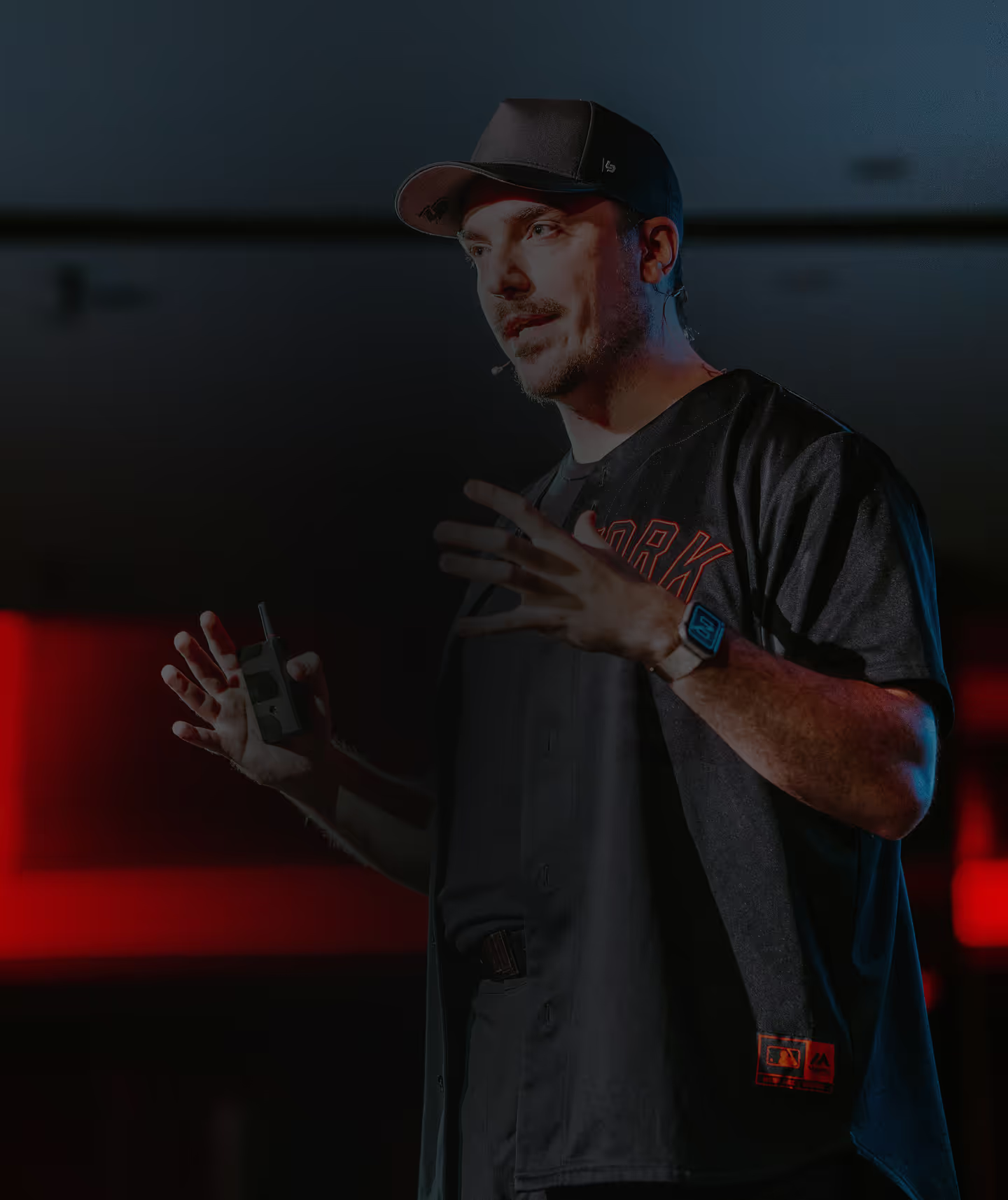
Enquire For Speaking

Let's Get You Branded
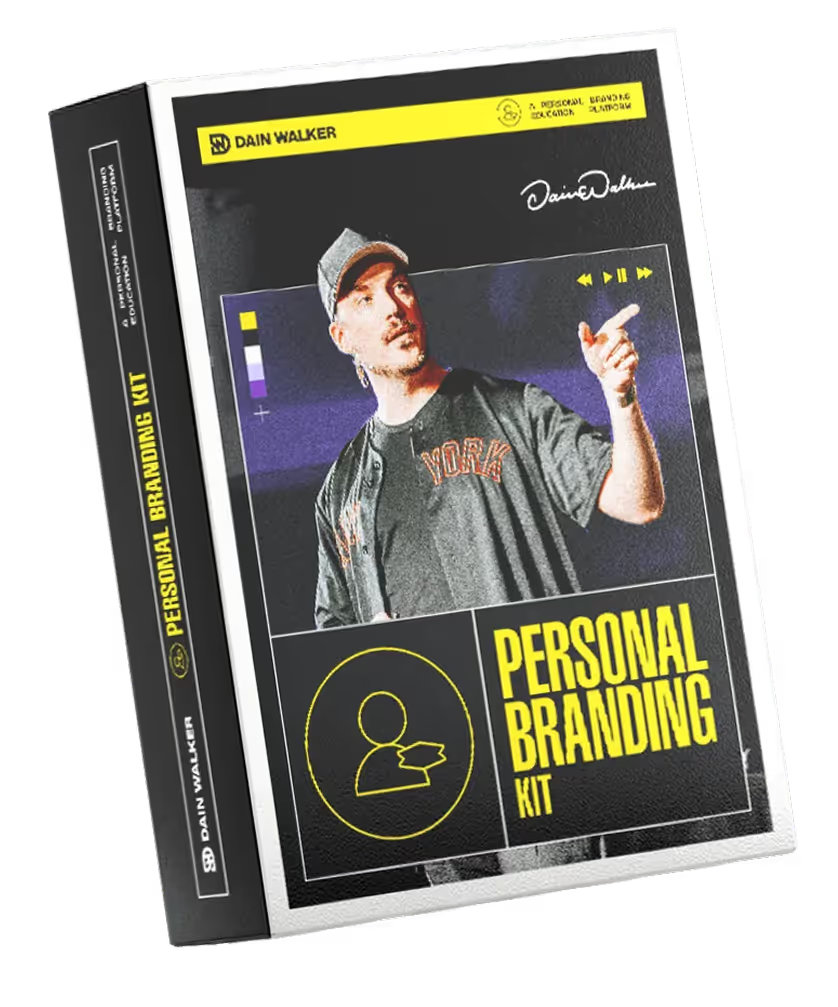
Apply to be a guest
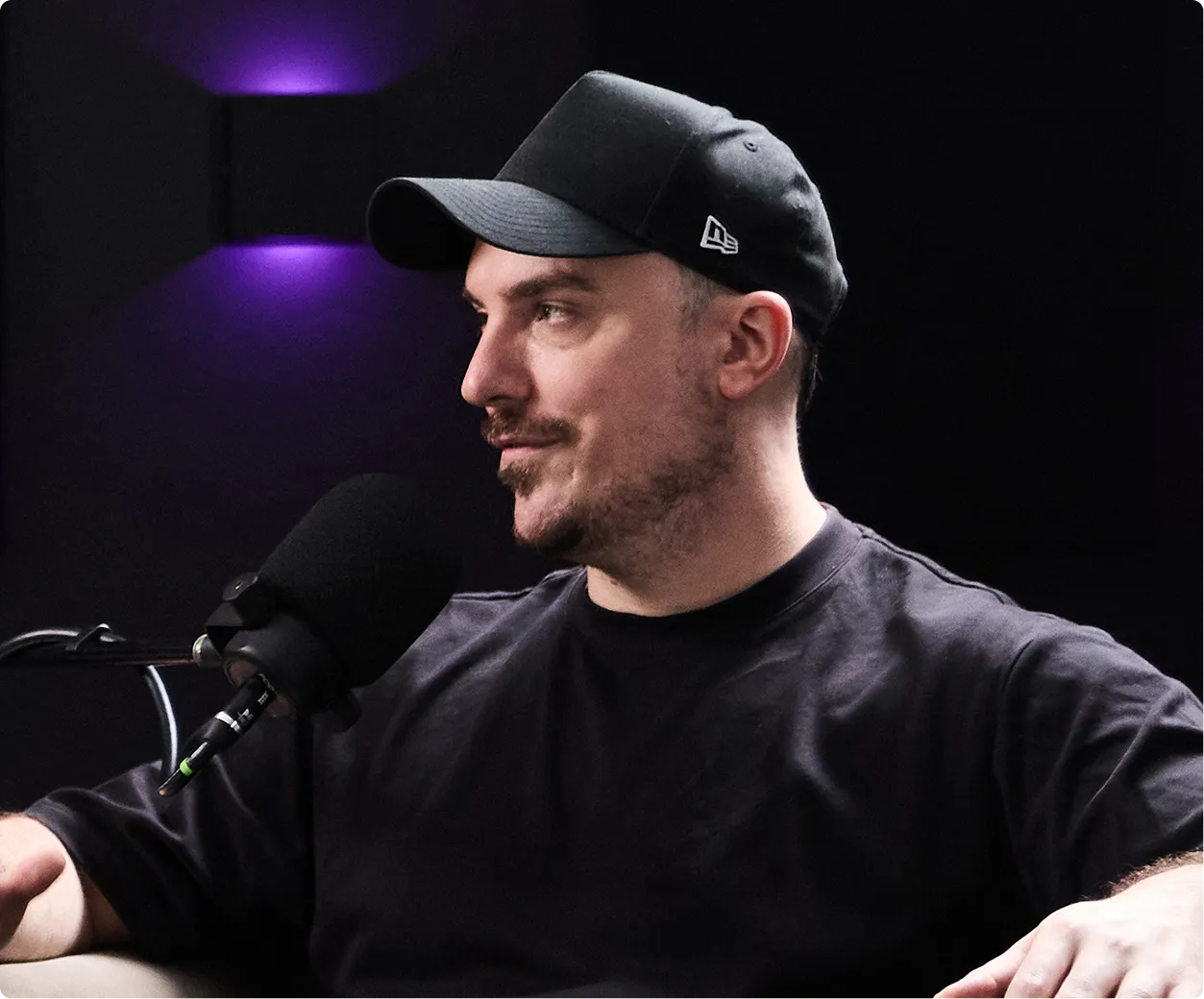
Dive into insights from industry leaders and experts.

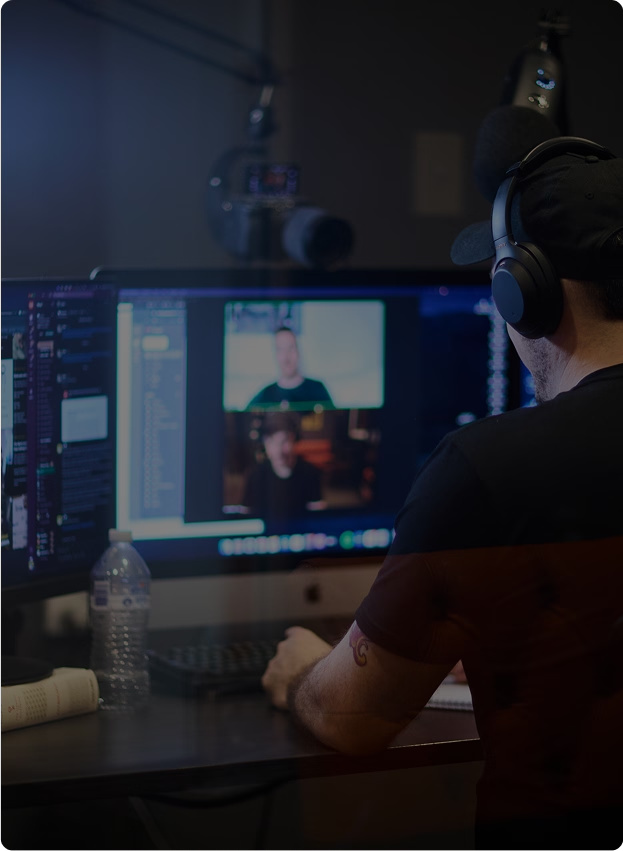
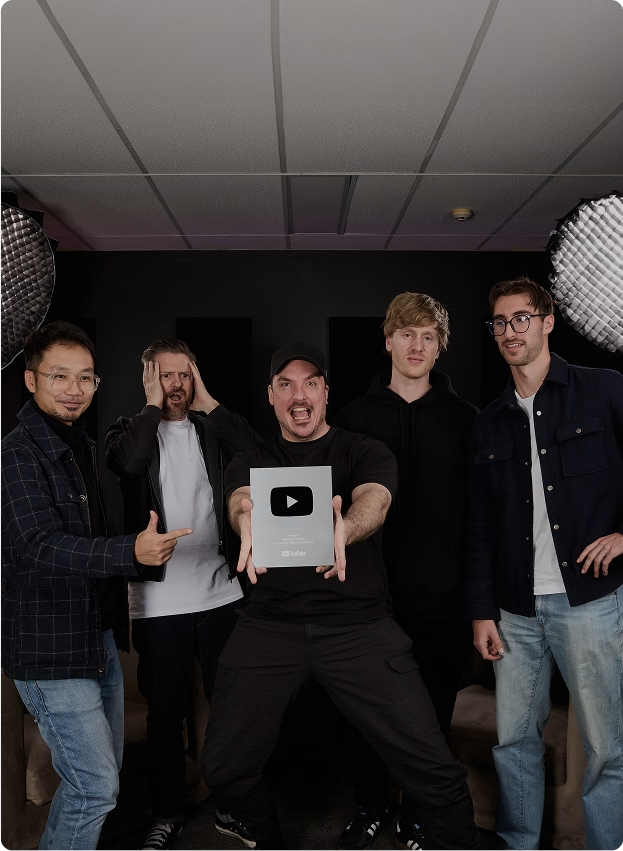
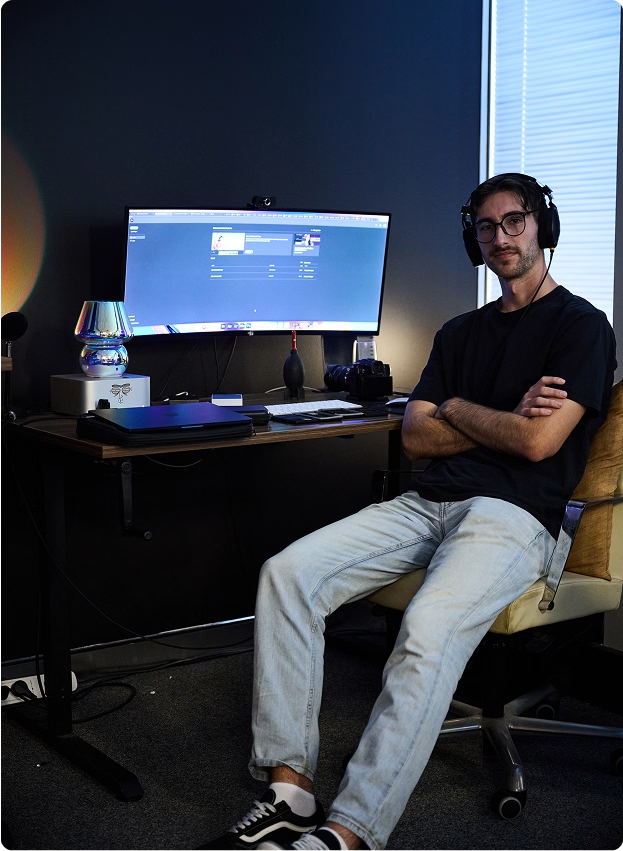
Stream now
Dive into expert advice and industry trends.


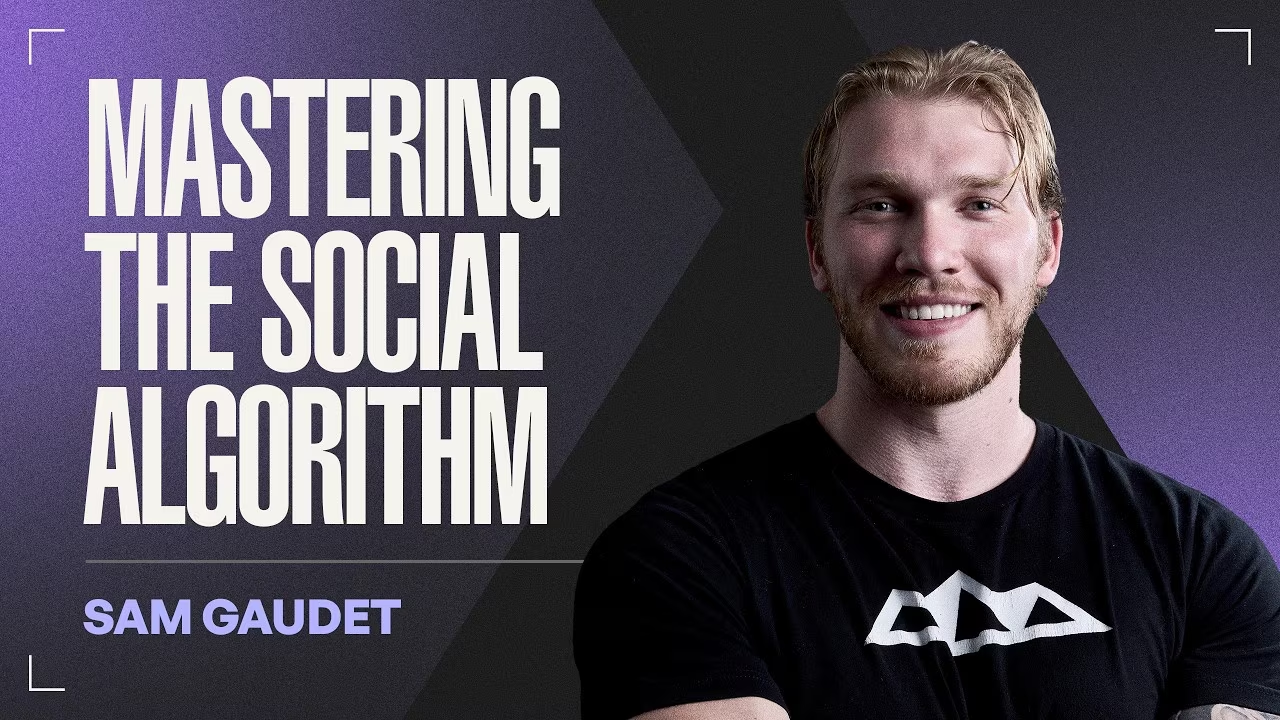
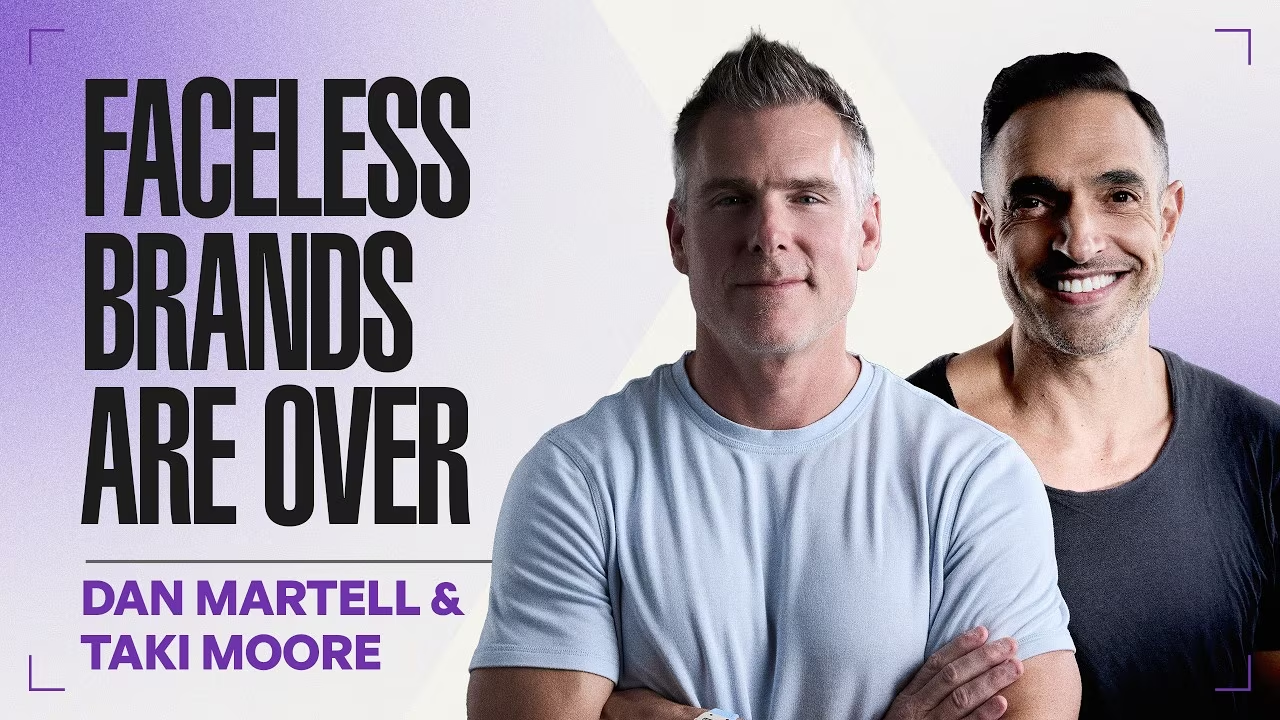
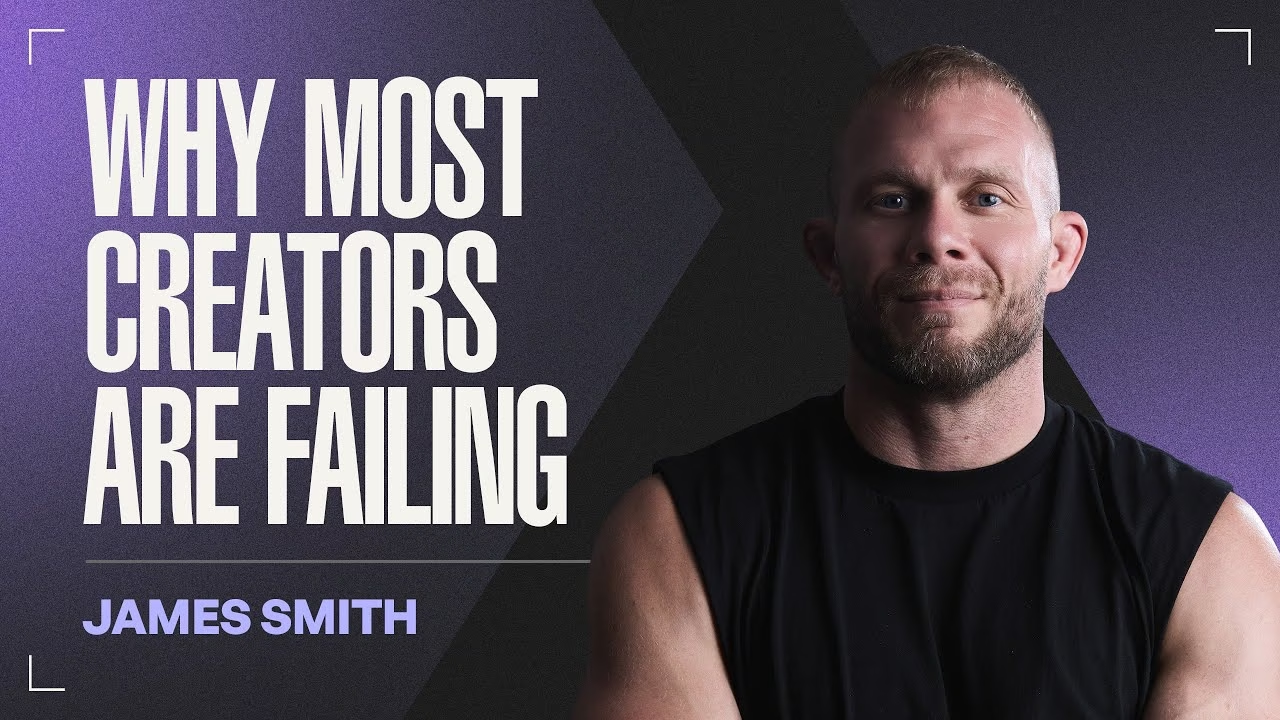

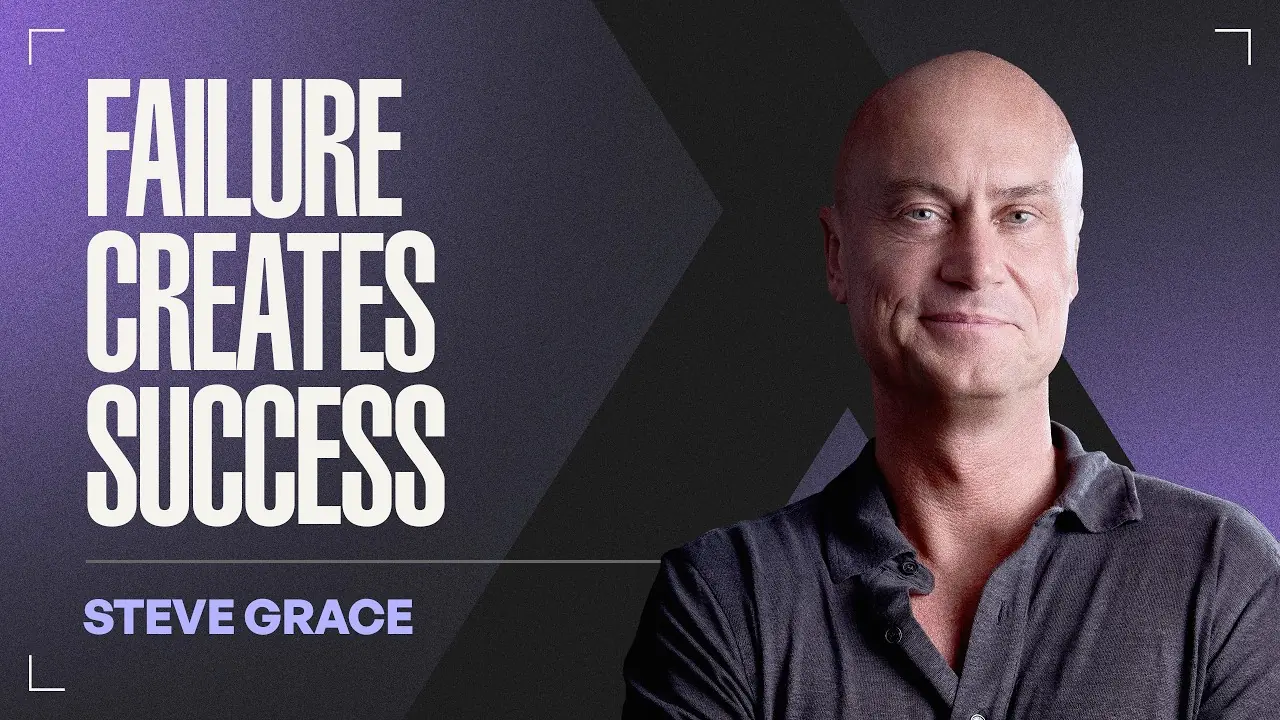

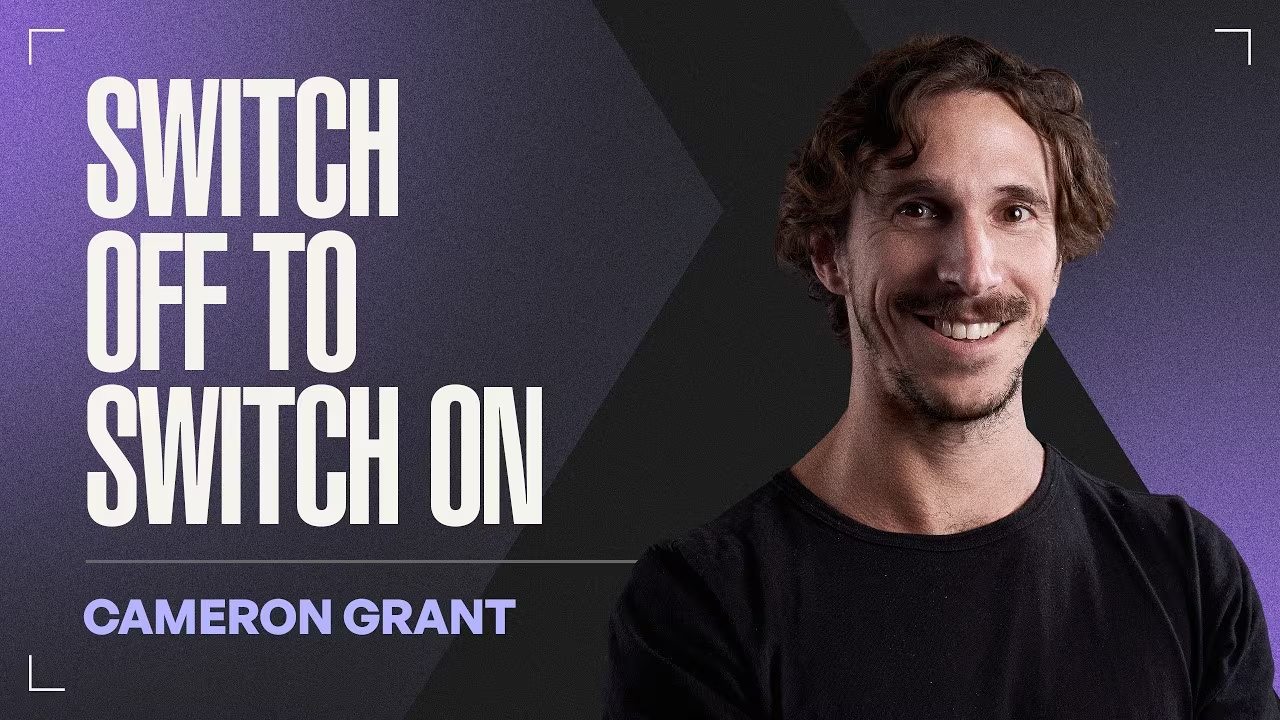
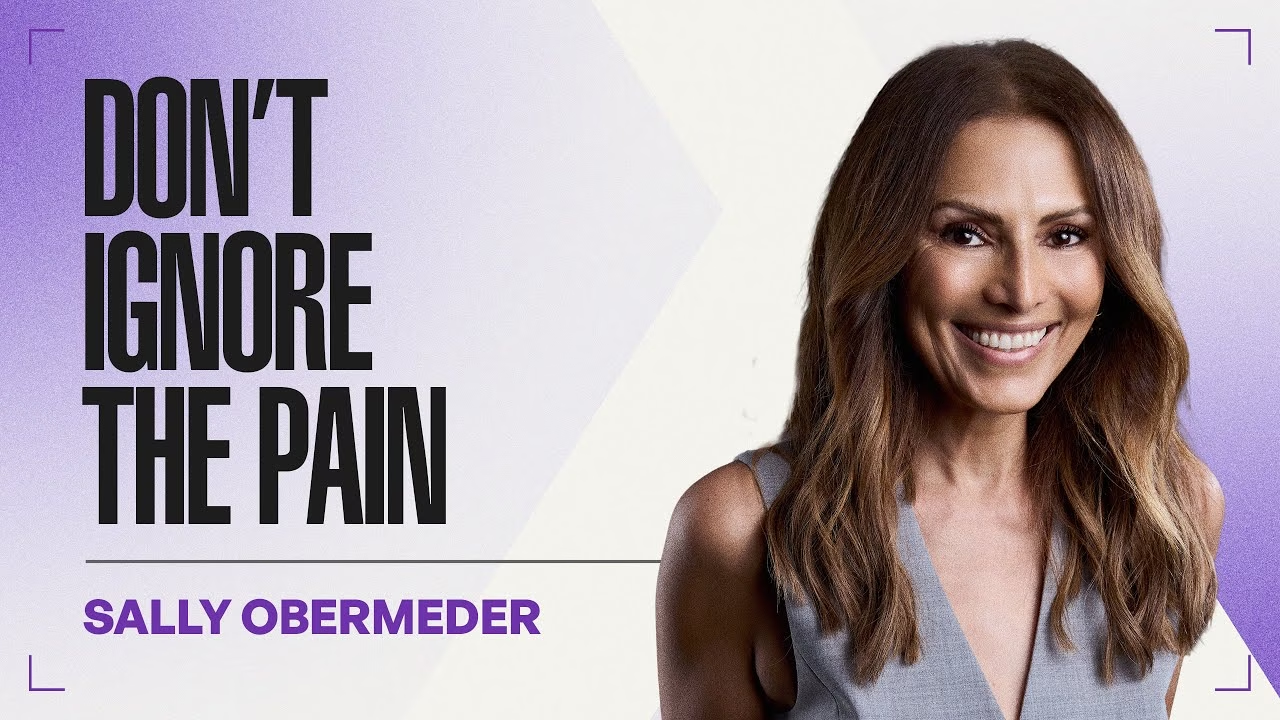

.avif)
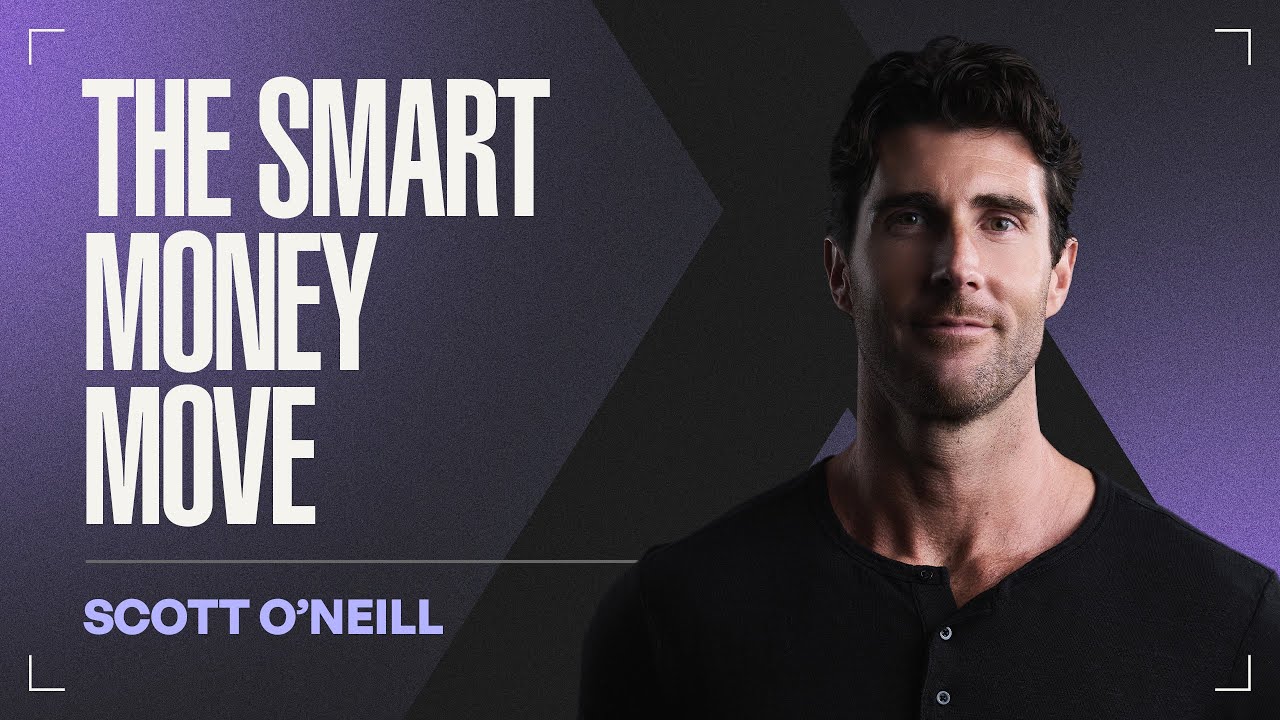


.avif)
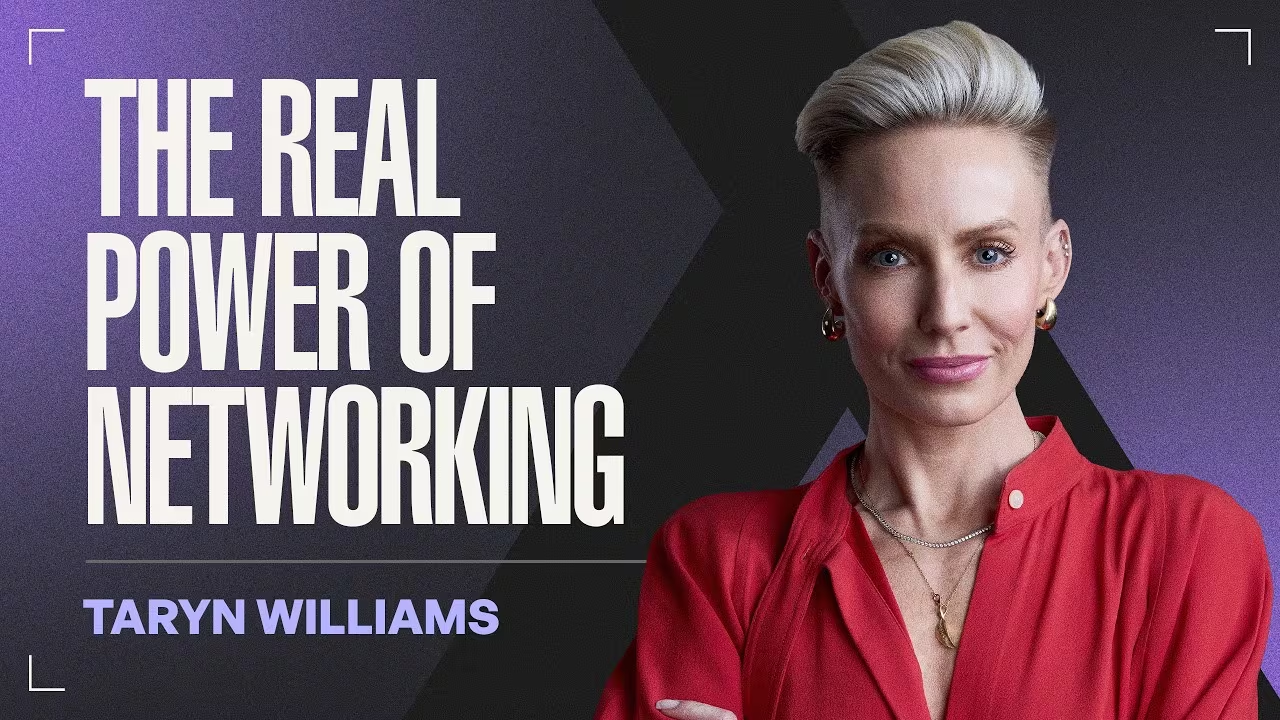

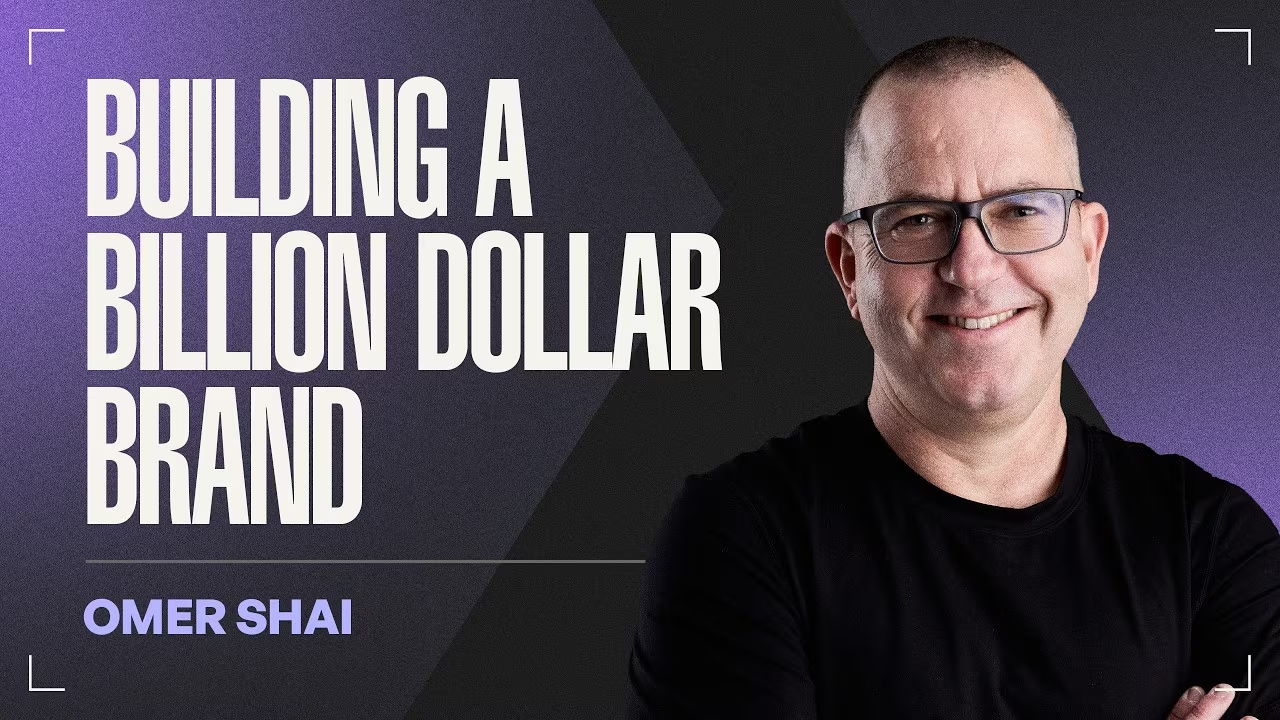

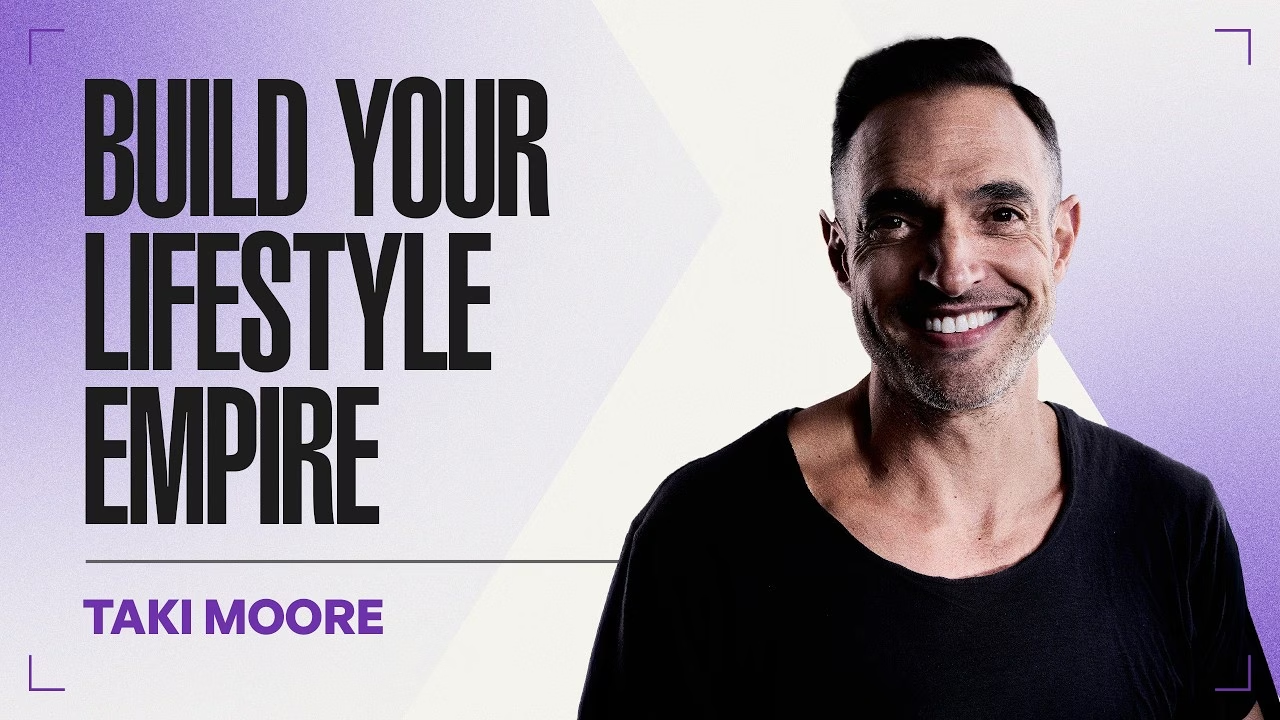
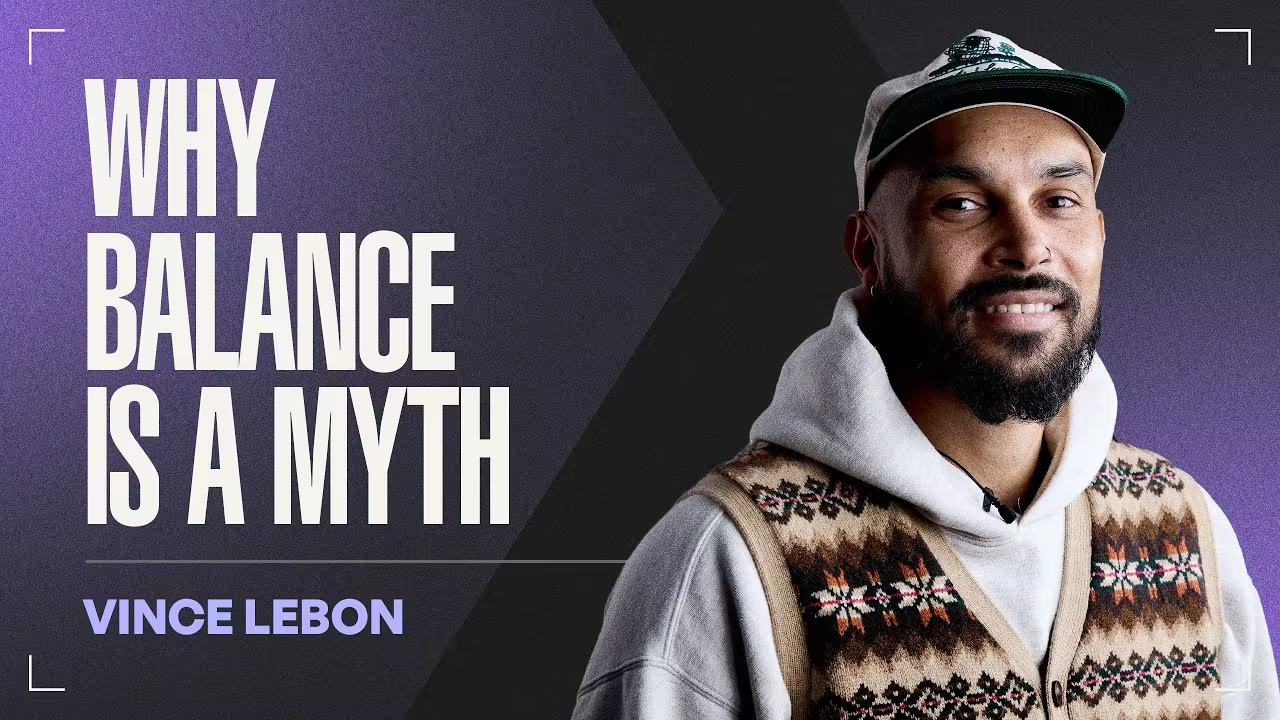

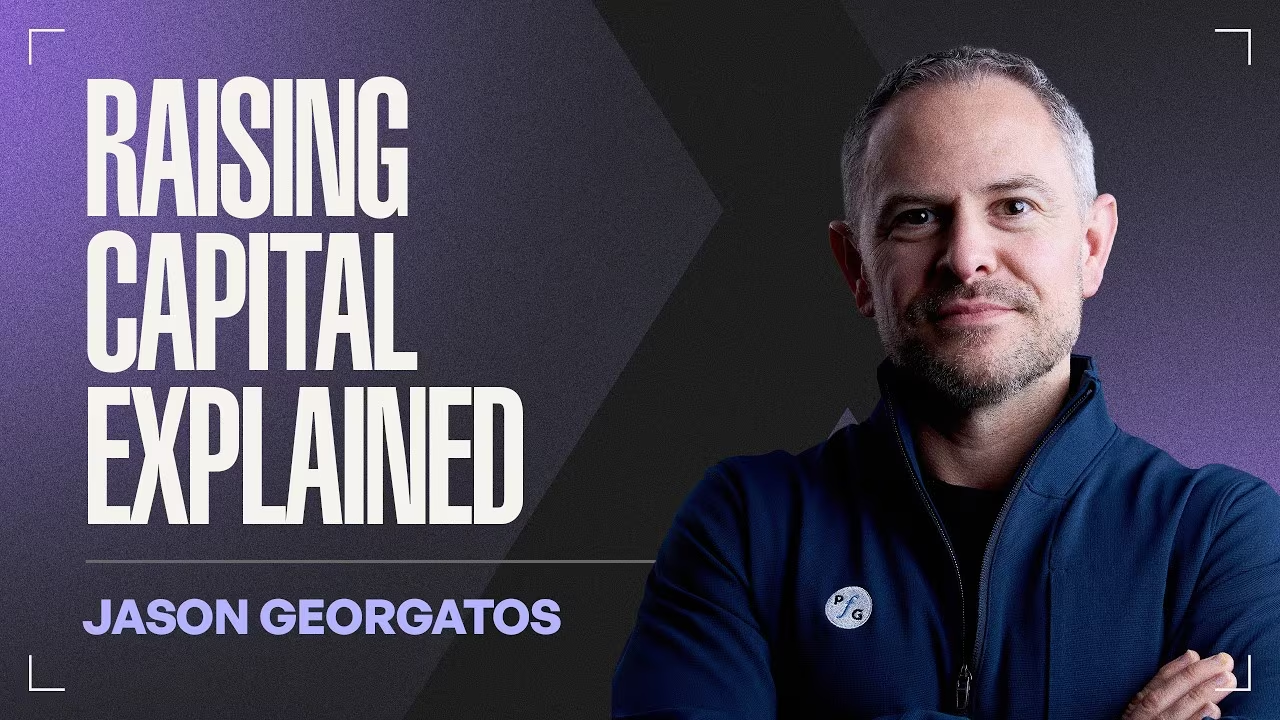
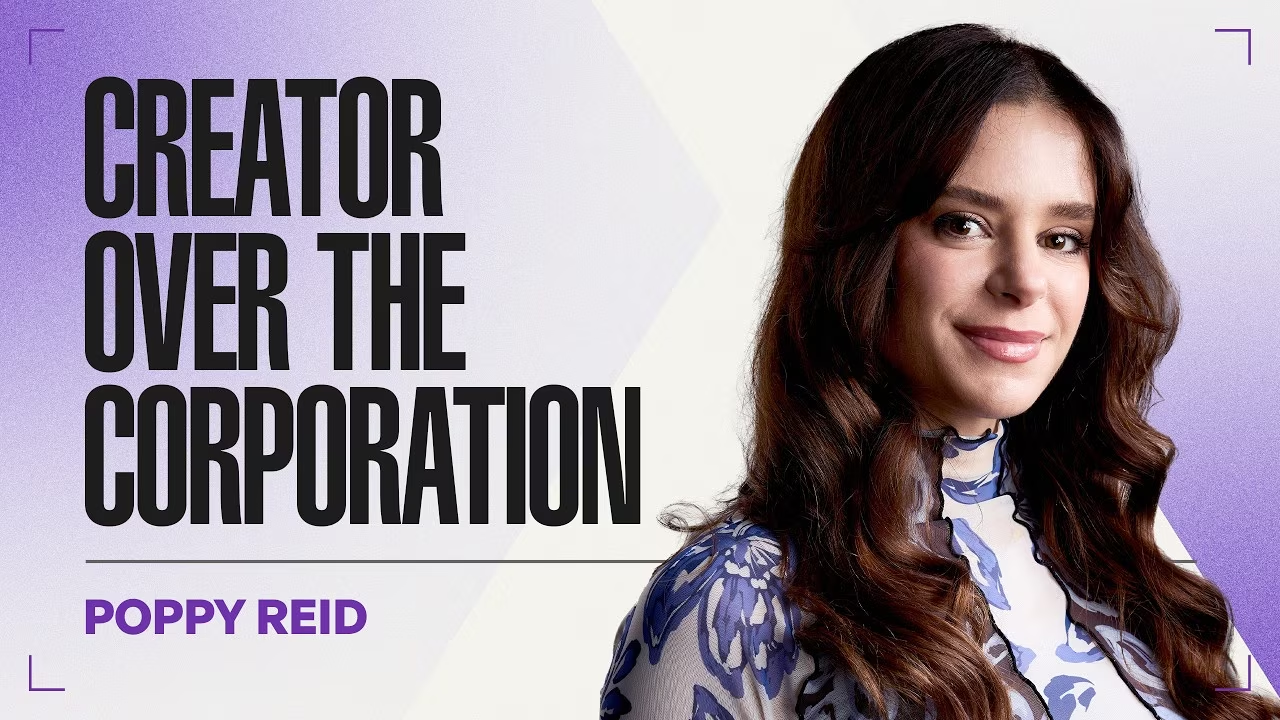


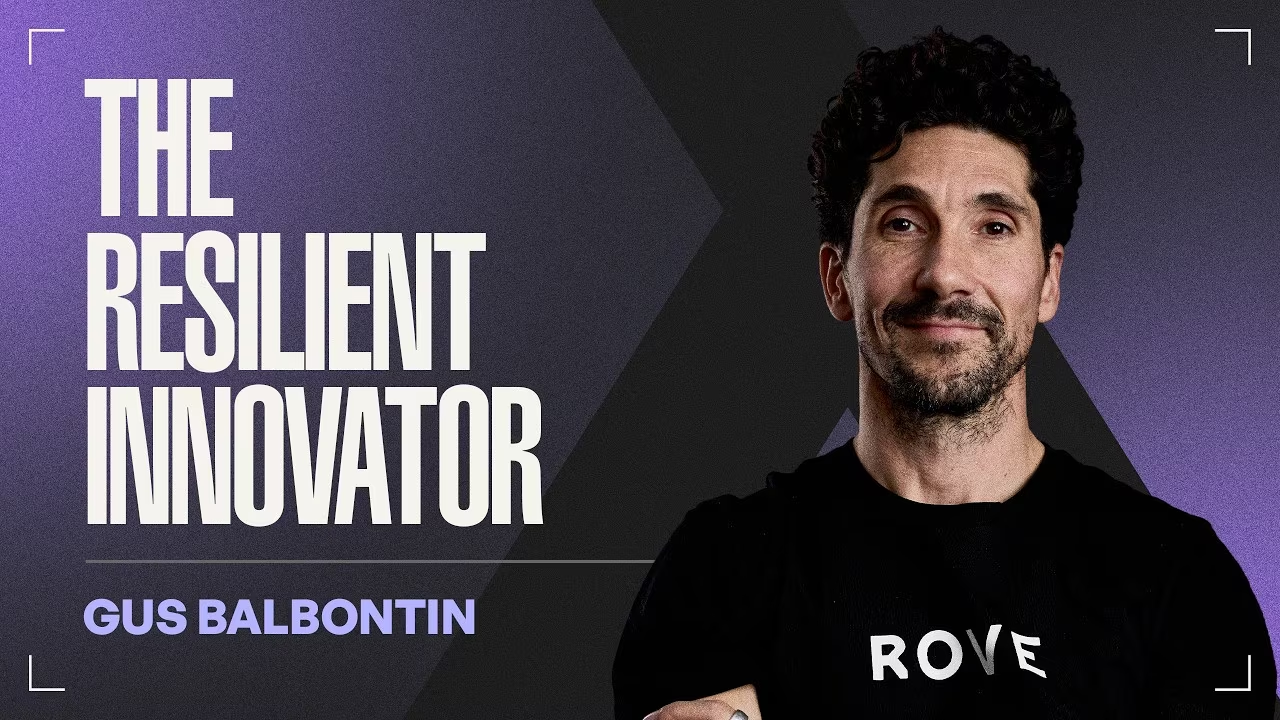
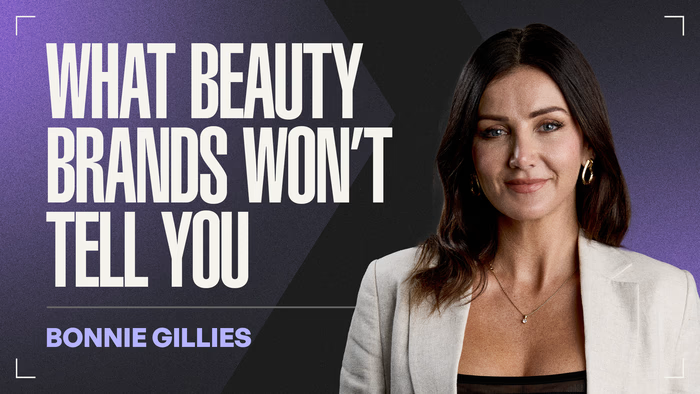


.avif)




